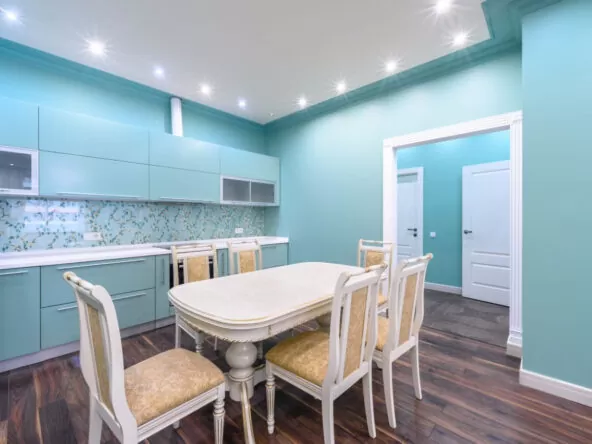Greater Toronto Area Real Estate
Toronto | Mississauga | Hamilton | Durham
Call Us Anytime: 416-274-2068
Prefer Text? 416-568-0427
Looking for Bspoke Realty?

10 Essential Things to Know About Real Estate Assignment Sales (for Sellers)
— We take our content seriously. This article was written by a real person at BREL.

What’s an assignment?
An assignment is when a Seller sells their interest in a property before they take possession – in other words, they sell the contract they have with the Builder to a new purchaser. When a Seller assigns a property, they aren’t actually selling the property (because they don’t own it yet) – they are selling their promise to purchase it, along with the rights and obligations of their Agreement of Purchase and Sale contract. The Buyer of an assignment is essentially stepping into the shoes of the original purchaser.
The original purchaser is considered to be the Assignor; the new Buyer is the Assignee. The Assignee is the one who will complete the final sale with the Builder.
Do assignments only happen with pre-construction condos?
It’s possible to assign any type of property, pre-construction or resale, provided there aren’t restrictions against assignment in the original contract. An assignment allows a Buyer of a any kind of home to sell their interest in that property before they take possession of it.
Why would someone want to assign a condo?
Often with pre-construction sales, there’s a long time lag between when the original contract is entered into, when the Buyer can move in (the interim occupancy period) and the final closing. It’s not uncommon for a Buyer’s circumstances to change during that time…new job out of the city, new husband or wife, new set of twins, etc. What worked for a Buyer’s lifestyle 4 years ago doesn’t always work come closing time.
Another common reason why people want to assign a contract is financial. Sometimes, the original purchaser doesn’t have the funds or can’t get the financing to complete the sale, and it’s cheaper to assign the contract to a new purchaser, than it is to renege on the sale.
Lastly, assignment sales are also common with speculative investors who buy pre-construction properties with no intention of closing on them. In these cases, the investors are banking on quick price appreciation and are eager to lock in a profit now, vs. waiting for the original closing date.
What can be negotiated in an assignment sale?
Because the Assignee is taking over the original purchaser’s contract, they can’t renegotiate the price or terms of the contract with the Builder – they are simply taking over the contract as it already exists, and as you negotiated it.
In most cases, the Assignee will mirror the deposit that you made to the Builder…so if you made a 20% deposit, you can expect the new purchaser to do the same.
Most Sellers of assignments are looking to make a profit, and part of an assignment sale negotiation is agreeing on price. Your real estate agent can guide you on price, which will determine your profit (or loss).
Builder Approval and Fees
Remember that huge legal document you signed when you made an offer to buy a pre-construction condo? It’s time to take it out and actually read it.
Your Agreement of Purchase & Sale stipulated your rights to assign the contract. While most builders allow assignments, there is usually an assignment fee that must be paid to the Builder (we’ve seen everything from $750 to $7,000).
There may be additional requirements as well, the most common being that the Builder has to approve the assignment.
Marketing Restrictions
Most pre-construction Agreements of Purchase & Sale from Toronto Builders do not allow the marketing of an assignment…so while the Builder may give you the right to assign your contract, they restrict you from posting it to the MLS or advertising it online. This makes selling an assignment extremely difficult…if people don’t know it’s available for sale, how they can possibly buy it?
While it may be very tempting to flout the no-marketing rule, BE VERY CAREFUL. Buyers guilty of marketing an assignment against the rules can be considered to have breached the Agreement, and the Builder can cancel your contract and keep your deposit.
We don’t recommend advertising an assignment for sale if it’s against the rules in your contract.
So how the heck can I find a Buyer?
There are REALTORS who specialize in assignment sales and have a database of potential Buyers and investors looking for assignments. If you want to be connected with an agent who knows the ins and outs of assignment sales, get in touch…we know some of the best assignment agents in Toronto.
What are the tax implications of real estate assignment?
Always get tax advice from a certified accountant, not from the internet (lol).
But in general, any profit made from an assignment is taxable (and any loss can be written off). The new Buyer or Assignee will be responsible for paying land transfer taxes and any HST that might be due.
How much does it cost to assign a pre-construction condo?
In addition to the Builder assignment fees, you will likely have to pay a real estate commission (unless you find the Buyer yourself) and legal fees. Because assignments are more complicated, you can expect to pay higher legal fees than you would for a resale property.
How does the closing of an assignment work?
With assignment sales, there are essentially 2 closings: the closing between the Assignor and the Assignee, and the closing between the Assignee and the Builder. With the first closing (the assignment closing) the original purchaser receives their deposit + any profit (or their deposit less any loss) from the Assignee. On the second closing (between the Builder and the Assignee), the Assignee pays the remaining amount to the Builder (usually with the help of a mortgage), and pays land transfer taxes. Title of the property transfers from the Builder to the Assignee at this point.
I suppose it could be said that there is a third closing too, when the Buyer takes possession of the property but doesn’t yet own it…this is known as the interim occupancy period. The interim occupancy occurs when the unit is ready to be occupied, but not ready to be registered with the city. Interim occupancy periods in Toronto range from a few months to a few years. During the interim occupancy period, the Buyer occupies the unit and pays the Builder an amount roughly equal to what their mortgage payment + condo fees + taxes would be. The timing of the assignment will dictate who completes the interim occupancy.
Assignments vs. Resale: Which is Better?
We often get calls from people who are debating whether they should assign a condo they bought, or wait for the building to register and then sell it as a typical resale condo.
Pros of Assigning vs. Waiting
- Get your deposit back and lock in your profit sooner
- Avoid paying land transfer taxes
- Avoid paying HST
- Maximize your return if prices are declining and you expect them to continue to decline
- Lifestyle – sometimes it just makes sense to move on
Cons of Assigning vs Waiting
- The pool of Buyers for assignment sales is much smaller than the pool of Buyers for resale properties, which could result in the sale taking a long time, getting a lower price than you would if you waited, or both.
- Marketing restrictions are annoying and reduce the chances of finding a Buyer
- Price – What is market value? If the condo building hasn’t registered and there haven’t been any resales yet, it can be difficult to determine how much the property is now worth. Assignment sales tend to sell for less than resale.
- Assignment sales can be complicated, so you want to make sure that you’re working with an agent who is experienced with assignment sales, and a good lawyer.
Still thinking of assignment your condo or house ? Get in touch and we’ll connect you with someone who specializes in assignment sales and can take you through the process.
Search by keyword or select a category below.
- Market Updates
- First Time Buyers
- 65+ Real Estate
- Aging in Place
- Mississauga
- Real Estate Crushes
- For Realtors
Raj Singh says:
What can be things to look for, especially determining market value for an assigned condo? I’m the assignee.
Sydonia Moton says:
Y would u need a lawyer when u buy a assignment property
Gideon Gyohannes says:
Good clear information!
Who pays the assignment fee to the developer? Assignor or Assignee?
Thanks Gideon 416 4591919
Melanie Piche says:
It’s almost always the Seller (though I suppose could be a point of negotiation).
Fiona Rourke says:
If there are 2 names on the agreement and 1 wants to leave and the other wants to remain… does the removing of 1 purchaser constitute an assignment
Brendan Powell says:
An assignment is one way to add or remove people from a contract, but not the only way…and not the simplest. Speak to your lawyer for advice on what makes the most sense for your specific situation. For a straightforward resale purchase you could probably just do an amendment signed by all parties. If it’s a preconstruction purchase with various deposits paid, etc it could be more complicated.
Katerina says:
Depends on the Developer. Some of them remove names via assignments only.
Haroon says:
Is there any difference in transaction process If assigner or seller of a pre constructio condo is a non resident ? Is seller required to get a clearance certificate from cRA to complete the transaction ?
Nathalie says:
Hello , i would like to know the exact steps for reassignment property please.
Amazing info. Thanks team. I may just touch base with you when my property in Stoney Creek is completed in. 2020. I may need to reassign it to someone Thanks
Victoria Bachlowa says:
If an assignor renegs on the deal and refuses to close because they figured out they could get more money and the assignment was already approved by the builder and all conditions fulfilled what can the Assignee do. I have $33,000 dollars in trust in the real estate’s trust fund. They sent me a mutual release which I have not signed. The interim occupancy is Feb. 1 and the closing is schedule for Mar. 1, 2019. I have financing in place, was ready to move in Feb. 1 and I have no where to live.
Definitely talk to your lawyer right away. They’ll want to look at your agreement of purchase and sale and will be able to advise you.
With assignment sales, there are essentially 2 closings: the closing between the Assignor and the Assignee, and the closing between the Assignee and the Builder. With the first closing (the assignment closing) the original purchaser receives their deposit + any profit (or their deposit less any loss) from the Assignee. Can I assume that these closing happen at the same time? I’m not sure how and when I would be paid as the Assignor.
What happens to the deposits or any profits already paid if the developer cancels the project after an assignment?
Hi, Did you get answer to this? I did an assignment sale last year and now the builder is not completing apparently and they are asking for their money back. Can they do that? After legal transactions, the lawyer simply said “the deal didn’t go through”. Apparently builder and the person who assumed the assignment agreed on taking out the deal. What do I have to pay back after it was done a year ago
This is definitely a question for your lawyer – as realtors we are not involved in that part of the transaction. I would expect that just as the builder would have to refund your deposits, you would likely need to do the same…but talk to your lawyer. As to whether the builder can cancel a project, yes they always reserve that right (but the details of how and under what circumstances would be in your original purchase agreement). It’s one of the annoying risks in buying preconstruction!
I completed the sale of my assignment in Dec 2015 however the CRA says I should be reporting the capital income in 2016 when the assignee closed his deal with the developer in July 2016. That makes no sense to me since I got all my money in Dec 2015. Can you supply any clarification on that CRA policy please?
You’d have to talk to the CRA or an accountant – we’re real estate agents,so we can’t give tax advice.
Hassan says:
Hello, You said that there are two closings. The first one between the assignor and the assignee and the second one between the builder and the new buyer (assignee). My question is that in the first closing does the assignee have to pay the assignor the deposit they have paid and any profit in cash or will the bank add this to the assignee’s mortgage?
The person doing the assigning usually gets their money at the first closing.
Kathy says:
What is the typical real estate free to assign your contract with the builder ?
Hi Kathy While we do few assignments (as they are rarely successful, and builders do not make it easy), in past we have charged more or less the same as we do for a typical resale listing. While there are elements to assignments that should be easier than a resale (eg staging), many other aspects of assignments are much MORE time-consuming, and the risk much higher since attempts to find a buyer for assignments are often unsuccessful. It’s also important to note that due to the extra complication, lawyer’s fees to assign are typically higher than resale as well–although more $ for the purchase side vs the sale side.
Mitul Patel says:
If assignee has paid small amount of deposit plus the original 25% deposit that the assignor has paid to the builder and gets the Keys to the unit since interim possession has been completed, when the condo registration is done and assignee is getting mortgage from the Bank or Pays the remaining balance to the Builder using his savings and decides not to pay the Balance of the Profit amount to Assignor, what are the possibilities in this kind of scenario?
You’d need to talk to a lawyer to find out the options.
David says:
How much exactly do brokers get paid at sale of Assignment? i.e. Would the broker’s fee be a % of your assignment selling price or your home’s selling price? I’m really looking for a clear answer.
I am using this website’s calculator associated with selling your home in Ontario. But there is no information on selling assignments. https://wowa.ca/calculators/commission-calculator-ontario
Realtors set their own commission, so there is no set fee- that website is likely the commission that that agent offers. We often see commissions of 4-5% for assignments. The fee is a % of the price of the assignment – for example, you originally bought for $500K; you’re now assigning for $600K – commission would be payable on the $600K.
Candace says:
Question: if i bought a pre construction condo, can i sell it as soon as it closes or do i have to live in it for 1 year after closing in order to avoid capital gains taxes?
Or does the 1 year start as soon as you move in?
I would suggest you talk to your accountant re: HST credit implications and capital gains, but if you sell it for more than you paid for it, capital gains usually apply.
You mention avoid paying HST when you assign your property. What is the HST based on? It’s not a commercial property that you would pay HST. Explain. Thanks.
HST and assignments are complex and this question is best answered specific to your situation by your accountant and real estate lawyer. In some cases HST is applicable on assignment profits – more details can be found on the CRA website here:
https://www.canada.ca/en/revenue-agency/services/forms-publications/publications/gi-120/assignment-a-purchase-sale-agreement-a-new-house-condominium-unit.html
If you are a podcast listener, the true condos podcast is also a great resource.
https://truecondos.com/cra-cracking-down-on-assignments/
heres one for your comment, purchase pre construction from builder beginning of 2021, to be finished end of 2021, (semi detached) here we are end of 2022, both units are now ready. Had one assigned but because builder didnt accept within certain time frame(they also had a 90 day clause wherein we couldnt assign prior to 90 less firm closing date (WHICH MOVED 4 TIMES). Anyrate now we have a new assinor but the builder says we are in default from the first one and wants 50k to do the assignment (the agreement lists the possibility of assigning for 12k) Also this deal would include us loosing our whole deposit and paying the 12k(plus fees) would be in addition too the 130k we are already loosing. The second property we are trying to close but interest rates are riducous, together with closing costs(currently mortgage company is asking that my wife be added to that one, afraid to even ask this builder. Any advice on how to deal with this asshole greedy builder? We are simply asking for assignment as per contract and a small extension for the new buyer(week or two) Appreciate any advice. Thank you
Dealing with builders/developers can be extremely painful, much worse than resale transactions in our experience. Their contracts are written to protect THEM. Unfortunately all I can say is follow the advice of your lawyer.
Leave A Comment Cancel Reply
Your email address will not be published. Required fields are marked *
Like What You're Reading?
- Comments This field is for validation purposes and should be left unchanged.

The Lourantos Group

: 416-505-7975
A Comprehensive Guide To Selling Your Assignment Condo

Trying to resell your preconstruction condo before closing? This blog is for you. Assignment sales are more complicated compared to their resale counterparts, but with some guidance, the process is easy.
An assignment sale is a sale where the original buyers of a condo or home resell their contract to another buyer before closing. The most common type of assignment is a preconstruction condo assignment. Preconstruction condo assignments are prevalent because of the time lag between purchasing the home and the move-in date. While condo assignments might be the most popular type of assignment, any real estate contract is assignable. This blog is going to discuss condo assignments since they are the most prevalent, but *most* of the details apply to assigning a home or commercial preconstruction property as well.
In the GTA, our preconstruction market is booming. Toronto alone sees around 30,000 new home completions a year. Around 70% of preconstruction purchasers are investors. The remaining 30% of buyers are end-users who plan to use the property themselves. However, many investors, and end-users, might decide to sell the property before the final closing. Since there is no title to transfer, these buyers have to assign their contract to the next buyer.
What is a preconstruction condo assignment sale?
An assignment is when the original buyers of a preconstruction condo decide to sell their contract with the builder to another buyer before the home is complete. This differs from a regular real estate transaction because we are not buying or selling a home, rather we are buying or selling an interest in a contract to purchase a home once it’s complete. Essentially, the buyers are taking over the seller’s place in the contract with the builder. The new buyer pays the seller their deposits back, as well as any profit. In trying times, there might not be profit, and in extreme cases, the sellers might walk away from their deposits.
Assignments are like the wild-west equivalent of real estate. The buyers are called assignees, the sellers are called assignors, and there is no fixed closing date! You heard that right, the buyer purchases the contract not knowing whether it will close in 4 weeks, 6 weeks, or 8 weeks. In many cases, the buyers only have a rough estimate for the final closing of the property as well.

Every builder’s agreement of purchase and sale is different, so every assignment sale is different. You need legal and accounting advice before, during, and after an assignment sale. A real estate agent’s job in the transaction is to find a buyer, negotiate the contract, and coordinate the sale from start to finish. Your real estate agent might also connect you with accountants, and lawyers who can help make the necessary legal and tax declarations.
The Builder’s Role In Assignments:
Sellers often misinterpret their rights to assign in their purchase agreements with their builder. In the showroom, builders are quick to say their contract is assignable if you want to flip your contract before closing. However, builders can control when, how, and to whom you sell your contract.
It’s important to follow the rules set out by your builder when marketing your assignment. Deviating from the builder’s purchase contract can result in you losing your deposits!
Since all preconstruction home assignments require the builder’s consent, it’s important to prepare the file for their consent at your earliest convenience. The builder will want the same information they collected from you when you first purchased the home: full names, current address, sin, IDs (front and back), telephone number, emails, mortgage pre-approval letter, lawyer information… they will also want the buyer to replace all your cheques. Those could be cheques for future deposits, or cheques for interim occupancy fees. It’s important to advise the buyers to prepare all of this information before submitting the file to the builder, so there is limited delay assigning the property.
How do you sell an assignment condo?
The first step to selling your assignment is to review your original purchase agreement. The builder’s purchase agreement outlines restrictions and fees associated with assignments. An experienced realtor or lawyer can also review the contract with you. Next, email your builder’s customer service account and ask for permission to advertise the property for sale.
It’s important to thoroughly understand your preconstruction agreement, because some incentives offered to you might not be transferable to the buyer. Builders often offer incentives to direct buyers to stimulate sales. However, they sometimes make these incentives non-transferable. That could mean the free design dollars, or the capped development levies might not be available to the next buyer. It’s important not to advertise incentives that aren’t transferable.
The second step is to hire a Realtor to advise you on current market conditions. Your realtor will discuss marketing options as well as help you decide on a market price. There is a strong chance the builder will prohibit MLS listings of their properties. However, many builders will allow online marketing in places like Facebook, Instagram, WhatsApp, and brokerage websites.
While Realtor.ca is the best marketing platform out there, buyers looking for assignments know to look elsewhere. Don’t worry if you cannot market on realtor.ca. One of the advantages of Sotheby’s International Realty Canada is our vast marketing platform outside of Realtor.ca
Important Dates:
The first date you need to consider is the assignment closing date. This is the date the assignee officially takes over the contract from the assignor. On average, assignment closing happens within 3-6 weeks after an offer is accepted. This is when the assignee becomes the new owner of the property, and the assignee receives some of their deposit/profit back.
The second date to consider is the interim occupancy date. When buying preconstruction condos, there is usually a period between when the unit is ready for occupancy and before the building has registered with the city. Since no title exists yet, you cannot get a mortgage. Instead, during this time, you move in and pay the builder rent until final closing. Interim occupancy can last from months to years. During interim occupancy, buyers have the chance to view the unit which could help sell the home. Interim occupancy is when most assignment sales take place.
The third date you need to know is the final closing date. This is the date that the building registers with the city and the assignee pays the builder the balance of the purchase price, land transfer taxes, closing costs etc. Sometimes, assignees will negotiate to pay some of the assignors profit on final closing date, so they can roll it into the mortgage.
What Is Negotiable During An Assignment Sale:
Since the contract with the builder is already firm and binding, there can be no changes to that contract. The buyer is merely stepping into the seller’s shoes, in exchange for their deposits and profits. The assignment contract negotiates the purchase price and the deposit structure. The purchase price will indicate how much profit (or loss) the assignor receives in the transaction.
The payment schedule of an assignment is dependent on whether there is a profit or not. If the seller is making a profit or breaking even, then the buyers are expected to refund the full deposit paid-to-date by the sellers. In many cases, that is 20% of the original purchase price. If the seller is losing money on the assignment, then the buyers will bring a deposit for less than the deposits already paid to the seller. The deposit is due upon acceptance of the offer.
If there is profit, the assignee and assignor will negotiate when that profit is paid out. Remember when we mentioned the three important dates? the assignment closing, the interim occupancy date, and the final closing date? well, when it comes to negotiating when to pay the assignor their profit, we usually pick one of these dates to pay out the assignor’s profit.
The expected final closing is an important consideration for buyers when negotiating when to pay the assignor’s profit. The longer the final closing date, the more risk for the buyer. The reason? there is always a small risk the condo developer cancels the project. If a condo developer cancels the project, the buyers are returned their deposits paid-to-date. However, if a buyer has paid an assignor $100,000 in profit, that money is gone. So if there is a long closing, expect buyers to protect their final deposits by delaying it till interim occupancy, or final closing.
Conditions In Assignment Sales
After finding a buyer, the first hurdle to overcome is negotiating a fair deal. Once both parties are satisfied with the terms of the contract, we make the deal conditional on the lawyer’s review. This gives both the buyer and seller a chance to have the assignment contract, as well as the original purchase agreement, reviewed by a lawyer. Once both parties have spoken to their lawyers and are happy to continue, we put the deal to the developer to approve the new buyer. This condition usually lasts around 30 days. If the developer does not approve the new buyer within 30 days, the deal will become null and void, unless the buyer and seller both agree to extend that condition.
Once the developer accepts the buyer, the assignment will happen within a few days. Most contracts outline an assignment closing within 5 business days after the developer gives their consent. Some buyers will also include financing conditions in their assignment offer, so they have time to run the deal past their mortgage broker. However, most assignments are purchased with only lawyer review and developer consent conditions.
Here’s an example of selling an assignment for profit vs selling an assignment for a loss:
Below are four examples of the deposit/profit payment schedule for assignments.
Example 1 is a fantastic example of a preconstruction condo that appreciated $100,000. In this typical example, the assignee and assignor agreed to a deposit big enough to return all of the assignor’s deposits, as well as some extra profit to cover Realtor commissions. This deposit is usually transferred to the listing brokerage within 1 day of the offer being accepted and is released to the assignor on assignment closing. In this example, the assignor and assignee also agreed to pay the seller the rest of their profit at the final closing.
Example 2 shows the same conditions for the sale, except the assignee agreed to pay the assignor their full deposit and all their profit on the assignment closing date, instead of the final closing date.
Example 3 looks at an assignment where the assignor is taking a $100,000 loss. Instead of being paid their whole deposit on assignment closing, they are paid their deposit minus the difference between the purchase price and the sale price.
Example 4 is a rare case, where the market has turned significantly and the assignor is looking to transfer their assignment for $0. This means the assignor is walking away from all their deposits and will take no money to transfer their contract to the assignee.
What Does It Cost To Sell An Assignment condo:
The major fees when selling an assignment include the builder’s assignment fee, real estate commissions, and tax on the profit. Builder’s assignment fees usually range from $1500-$25,000 (in some extreme cases they go as high as $80,000). The assignor usually pays both the assignor and the assignee’s realtor commissions. The commission is something to negotiate with your agent. The total commission is usually 5% or less of the final sale price. There are likely taxes such as income tax, capital gains tax, or HST on the sale as well. Speak to your accountant about taxes due on the assignment sale.
Taxes due on an assignment sale:
The taxes on assignments are simple, however, buyers and sellers often confuse the HST taxes. That’s because there are two different HST taxes when talking about preconstruction assignments. Let’s clarify this! All new homes are subject to HST, however, end-users don’t notice the HST tax because the builder pays it and claims a $24,000 rebate on the end-user’s behalf. Alternatively, investors who purchase a pre-construction home are charged around $24,000 in HST, and are then able to claim a rebate for the HST they paid, if they rent the property out for one year. There are situations where an assignment will lose its eligibility for the HST rebate. If someone has lived in the home during interim occupancy, it will no longer be eligible for the end-user HST rebate.
The second HST tax we discuss when selling an assignment is the HST due on the profit. In many cases, the profit is subject to a 13% HST tax. In some cases, even the return of deposits is subject to HST.
The third tax is the income or capital gains tax on the profit. Any real estate property that is not your primary residence, as well as any business venture, is taxable as either a capital gain or as income. It’s really important to speak to an accountant before selling your assignment. Only an accountant can advise you whether you owe HST, capital taxes, or income taxes on your assignment sale.
Is it better to sell an assignment or wait till the condo is ready?
The pros to assigning a condo:
- Receive your deposits and profit sooner
- Avoid market risks. Savvy investors might look to assign their property if they sense the market might depreciate in the coming months/years.
- Avoid paying closing costs (land transfer taxes, development levies, utility hookups, and more). These usually come to a little more than 5.5% of the purchase price
- No mortgage or financing required
- Minimize holding costs (if you sell before interim occupancy or before final closing, there are no property taxes, maintenance fees, utility fees, insurance, mortgage, etc)
Cons to assigning a condo
- Developer restrictions (limiting the marketing of the property, limiting when they are accepting assignments)
- Market perception and buyer’s hesitancy when buying a property sight-unseen
- Market fluctuations suppressing buyer demand
- Limited buyer pool and most of the buyers are investors who want a good deal
- Usually sell for a lower price than comparable resale properties
- Financing challenges for the buyer if the property does not appraise at the new purchase price
- Potentially more taxes compared to closing and reselling
The most common mistakes when selling an assignment:
Hiring the wrong representation, or not relying on professional advice:.
As active realtors in the assignment market, we come across quite a few mistakes. But most of them could be avoided if the buyers and sellers were represented by experienced realtors and lawyers. The agreement of purchase and sale for an assignment is very different compared to an agreement of purchase and sale for a resale home. One of the most common mistakes we see from buyers and sellers is assuming the paperwork their realtors drafted is correct, and forgoeing their right to have their lawyer review the assignment paperwork.
Poor communication/understanding:
This happened to my assignment buyers recently. They purchased a home where the seller’s representative told us the finishes had not been chosen yet. We protected our buyers by including clauses to that degree. However, a few days after the assignment closing, we learned the sellers chose the finishes a few days before closing. Luckily, the developer allowed the buyer to make changes to the finishes at an additional fee.
Ignoring deadlines or dragging your feet:
Assignments come with a lot of moving deadlines, and there are a lot more parties involved compared to a resale property. Always return paperwork and signatures as soon as possible. Compared to a resale property where the only parties are the buyer, seller, and their agents and lawyers, an assignment involves the developer, the developer’s lawyers, the buyer and seller agents, and the buyer and seller lawyers. If everyone took 3 days to return paperwork, the conditional period would lapse and the deal would become null and void.
Incomplete Buyer Vetting:
Buying an assignment requires the assignee to have their mortgage preapproval, as well as their purchase funds available very shortly. If the assignee does not have a mortgage preapproval on hand, it could delay the developer accepting the assignment. If they do not have their funds available it could delay the quick closing as well.
It’s important to thoroughly vet buyers because some builders require the assignor to close in the rare chance the assignee cannot close.
Misunderstanding fees:
Builder’s contracts are not standard forms, and their deposit structures and closing fees can vary from site to site. There are a lot of potential fees when buying and selling assignments and they include, but are not limited to: deposits, seller’s profits, upgrades, lawyer’s fees, interim occupancy rent, utility set-up fees, development levies, realtor commissions, accountant fees, HST, and income taxes. These fees can vary from deal to deal, and when they are payable is different in every assignment. For example, some developers require the homeowner to pay for upgrades when they are chosen, and others charge for the upgrades at final closing.
If you have a preconstruction condo or home that you are thinking of assigning. Feel free to reach out to us for some advice and insight.
Related posts.

6 important facts to consider when selling a preconstruction condo.

Everything you need to know to sell your preconstruction condo assignment
You are using an outdated browser. Please upgrade your browser to improve your experience.
Rashid Notash, Broker
416-500-5360 | [email protected]
The Condo Assignment Process: Everything You Should Know
- Share This:

September 15, 2018 | Selling
Condo assignment sales are different from typical pre-construction transactions. Whether you’re on the buyer or seller side, the condo assignment process is unique—which is why you should take the time to learn about the costs, timelines, and other specifics involved.
If you’re thinking about buying or selling a condo on assignment, here’s what you should know…
What is a condo assignment sale.
An assignment sale occurs when a pre-construction condo buyer decides to sell before closing. Since they don’t technically own their unit (which may not be completed yet), what they’re really selling is their purchase agreement with the builder.
The concept sounds simple. However, there are some ins and outs that both sellers and buyers should know to ensure that their transaction is legally above board—and in their best interests.
Seller FAQs
Thinking of selling your pre-construction condo on assignment? Here are some answers to the most commonly asked questions sellers have about the process.
Should I sell my condo on assignment?
Pre-construction buyers often sell condos on assignment as part of an investment strategy. That said, there are other instances where going this route makes sense.
Maybe your lifestyle has changed, and the unit you were excited about a year ago is no longer ideal. Perhaps you’re facing some financial challenges, and you need some cash in the short term. Whatever your circumstances, a real estate agent with condo expertise can help you decide if selling on assignment is right for you.
What are the tax implications of selling on assignment?
While there’s nothing wrong with assignment sales, some Canadian investors have gotten themselves in hot water for making them without paying taxes on their profits. Regulators have been cracking down on these transactions, which is why knowing your taxation responsibilities is crucial.
The bottom line? If you’re making an assignment sale, it’s best to speak with a financial expert before moving forward.
Does the builder need to be involved?
Your Agreement of Purchase and Sale will specify whether selling your condo on assignment is permitted. Either way, you should obtain consent beforehand. There’s a very good chance that builder approval of an assignment sale is a condition in your contract—so read it carefully.
How much will it cost to sell on assignment?
If the builder signs off on your sale, you’ll probably still have to pay a fee. This sum could range from a few hundred dollars to several thousand, and in some instances it is waived by the developer. You should also be aware that, along with the regular costs associated with selling, your legal fees may be higher than they would be for a simpler transaction.
Will I get my deposit back?
A purchaser who is buying on assignment (also known as an “assignee”) usually pays the assignor their full deposit. As part of a typical deal, you should receive the amount you’ve paid to date, sometimes along with your profit, on closing day.
How can I find a buyer?
Be aware that there are marketing restrictions placed on most assignment sales. While it depends on the terms of your agreement with the builder, you probably won’t be able to post on the MLS or online.
If you market your assignment in violation of your contract, the builder may be able to cancel your agreement—and hold onto your deposit. For this reason, working with an agent who knows the local condo market is your best bet for finding a buyer.
Are you thinking of purchasing a pre-construction condo on assignment? Read answers to some of the most common questions buyers have first.
When is buying a condo on assignment a good idea?
If you’re excited about a particular condo development that has no remaining inventory, buying on assignment could be your way into the building. In many cases, the price for a unit is lower when it’s sold this way than it would be if it were on the market as a resale unit.
On the flip side, assignment sales tend to be more complicated than traditional condo transactions. They often entail costs, risks, and legal minutiae that aren’t part of conventional resale and pre-construction purchases.
An agent with condo market expertise can help you weigh the pros and cons of including assignment sales in your condo search.
Can I renegotiate the terms of the agreement in place?
No. When you buy a condo on assignment, you’ll be expected to fulfill the terms and conditions that the original buyer agreed to (and take on any potential risks associated with them). For this reason, it’s very important that you protect your interests by working with an experienced real estate lawyer.
Fortunately, you may be able to negotiate with the seller (or “assignor”) regarding the specifics of your purchase with them. Assignors are often in the midst of a life transition, and they may be eager to make a deal and move on.
Which costs will I pay?
Along with the sum you’ve agreed to, you will almost certainly be expected to pay the assignor the amount they’ve put towards their deposit to date. Unless your contract specifies otherwise, you will be responsible for final closing costs including (but not limited to) land transfer taxes, development fees, Tarion fees, and HST if applicable.
As part of the assignor’s original agreement, development charges may be capped. If this is the case, you could wind up spending significantly less money—so it’s worth looking into.
How will closing work?
Closing on an assignment sale can be complicated for the assignee. You’ll have to go through the process twice: once when your deal is finalized with the assignor, and again when you close with the builder. During the first closing, you’ll pay the assignor their deposit and sometimes the profit. The profit portion could be renegotiated and paid on the second closing. During the second, you’ll pay the developer the remainder of what’s owed.
Don’t forget about the occupancy period! Once your unit is fit to be occupied, you will pay a sum that’s approximately equal to your monthly mortgage payments and condo fees until the building is registered.
What else should I know?
In addition to understanding the assignment process, you should be aware of the pros and cons that go along with buying a pre-construction condo. Your purchase will come with certain risks that the original buyer was willing to take on—such as delays to closing. On the flip side, there’s nothing quite like moving into a beautiful, brand new condo.
When handled correctly, condo assignment sales can be beneficial to buyers, sellers, and developers. Just remember that understanding the process is the key to success—which is why working with the right real estate and legal professionals is so important!
Interested in buying or selling a pre-construction condo? Let’s discuss it! Call or shoot me a text at 416-500-5360, or email me at [email protected].

- Coaching Team
- Investor Tools
- Student Success
Real Estate Investing Strategies
- Real Estate Business
- Real Estate Markets
- Real Estate Financing
- REITs & Stock Investing
How To Navigate The Real Estate Assignment Contract

What is assignment of contract?
Assignment of contract vs double close
How to assign a contract
Assignment of contract pros and cons
Even the most left-brained, technical real estate practitioners may find themselves overwhelmed by the legal forms that have become synonymous with the investing industry. The assignment of contract strategy, in particular, has developed a confusing reputation for those unfamiliar with the concept of wholesaling. At the very least, there’s a good chance the “assignment of contract real estate” exit strategy sounds more like a foreign language to new investors than a viable means to an end.
A real estate assignment contract isn’t as complicated as many make it out to be, nor is it something to shy away from because of a lack of understanding. Instead, new investors need to learn how to assign a real estate contract as this particular exit strategy represents one of the best ways to break into the industry.
In this article, we will break down the elements of a real estate assignment contract, or a real estate wholesale contract, and provide strategies for how it can help investors further their careers. [ Thinking about investing in real estate? Register to attend a FREE online real estate class and learn how to get started investing in real estate. ]
What Is A Real Estate Assignment Contract?
A real estate assignment contract is a wholesale strategy used by real estate investors to facilitate the sale of a property between an owner and an end buyer. As its name suggests, contract assignment strategies will witness a subject property owner sign a contract with an investor that gives them the rights to buy the home. That’s an important distinction to make, as the contract only gives the investor the right to buy the home; they don’t actually follow through on a purchase. Once under contract, however, the investor retains the sole right to buy the home. That means they may then sell their rights to buy the house to another buyer. Therefore, when a wholesaler executes a contact assignment, they aren’t selling a house but rather their rights to buy a house. The end buyer will pay the wholesale a small assignment fee and buy the house from the original buyer.
The real estate assignment contract strategy is only as strong as the contracts used in the agreement. The language used in the respective contract is of the utmost importance and should clearly define what the investors and sellers expect out of the deal.
There are a couple of caveats to keep in mind when considering using sales contracts for real estate:
Contract prohibitions: Make sure the contract you have with the property seller does not have prohibitions for future assignments. This can create serious issues down the road. Make sure the contract is drafted by a lawyer that specializes in real estate assignment contract law.
Property-specific prohibitions: HUD homes (property obtained by the Department of Housing and Urban Development), real estate owned or REOs (foreclosed-upon property), and listed properties are not open to assignment contracts. REO properties, for example, have a 90-day period before being allowed to be resold.

What Is An Assignment Fee In Real Estate?
An assignment fee in real estate is the money a wholesaler can expect to receive from an end buyer when they sell them their rights to buy the subject property. In other words, the assignment fee serves as the monetary compensation awarded to the wholesaler for connecting the original seller with the end buyer.
Again, any contract used to disclose a wholesale deal should be completely transparent, and including the assignment fee is no exception. The terms of how an investor will be paid upon assigning a contract should, nonetheless, be spelled out in the contract itself.
The standard assignment fee is $5,000. However, every deal is different. Buyers differ on their needs and criteria for spending their money (e.g., rehabbing vs. buy-and-hold buyers). As with any negotiations , proper information is vital. Take the time to find out how much the property would realistically cost before and after repairs. Then, add your preferred assignment fee on top of it.
Traditionally, investors will receive a deposit when they sign the Assignment of Real Estate Purchase and Sale Agreement . The rest of the assignment fee will be paid out upon the deal closing.
Assignment Contract Vs Double Close
The real estate assignment contract strategy is just one of the two methods investors may use to wholesale a deal. In addition to assigning contracts, investors may also choose to double close. While both strategies are essentially variations of a wholesale deal, several differences must be noted.
A double closing, otherwise known as a back-to-back closing, will have investors actually purchase the home. However, instead of holding onto it, they will immediately sell the asset without rehabbing it. Double closings aren’t as traditional as fast as contract assignment, but they can be in the right situation. Double closings can also take as long as a few weeks. In the end, double closings aren’t all that different from a traditional buy and sell; they transpire over a meeter of weeks instead of months.
Assignment real estate strategies are usually the first option investors will want to consider, as they are slightly easier and less involved. That said, real estate assignment contract methods aren’t necessarily better; they are just different. The wholesale strategy an investor chooses is entirely dependent on their situation. For example, if a buyer cannot line up funding fast enough, they may need to initiate a double closing because they don’t have the capital to pay the acquisition costs and assignment fee. Meanwhile, select institutional lenders incorporate language against lending money in an assignment of contract scenario. Therefore, any subsequent wholesale will need to be an assignment of contract.
Double closings and contract assignments are simply two means of obtaining the same end. Neither is better than the other; they are meant to be used in different scenarios.
Flipping Real Estate Contracts
Those unfamiliar with the real estate contract assignment concept may know it as something else: flipping real estate contracts; if for nothing else, the two are one-in-the-same. Flipping real estate contracts is simply another way to refer to assigning a contract.
Is An Assignment Of Contract Legal?
Yes, an assignment of contract is legal when executed correctly. Wholesalers must follow local laws regulating the language of contracts, as some jurisdictions have more regulations than others. It is also becoming increasingly common to assign contracts to a legal entity or LLC rather than an individual, to prevent objections from the bank. Note that you will need written consent from all parties listed on the contract, and there cannot be any clauses present that violate the law. If you have any questions about the specific language to include in a contract, it’s always a good idea to consult a qualified real estate attorney.
When Will Assignments Not Be Enforced?
In certain cases, an assignment of contract will not be enforced. Most notably, if the contract violates the law or any local regulations it cannot be enforced. This is why it is always encouraged to understand real estate laws and policy as soon as you enter the industry. Further, working with a qualified attorney when crafting contracts can be beneficial.
It may seem obvious, but assignment contracts will not be enforced if the language is used incorrectly. If the language in a contract contradicts itself, or if the contract is not legally binding it cannot be enforced. Essentially if there is any anti-assignment language, this can void the contract. Finally, if the assignment violates what is included under the contract, for example by devaluing the item, the contract will likely not be enforced.
How To Assign A Real Estate Contract
A wholesaling investment strategy that utilizes assignment contracts has many advantages, one of them being a low barrier-to-entry for investors. However, despite its inherent profitability, there are a lot of investors that underestimate the process. While probably the easiest exit strategy in all of real estate investing, there are a number of steps that must be taken to ensure a timely and profitable contract assignment, not the least of which include:
Find the right property
Acquire a real estate contract template
Submit the contract
Assign the contract
Collect the fee
1. Find The Right Property
You need to prune your leads, whether from newspaper ads, online marketing, or direct mail marketing. Remember, you aren’t just looking for any seller: you need a motivated seller who will sell their property at a price that works with your investing strategy.
The difference between a regular seller and a motivated seller is the latter’s sense of urgency. A motivated seller wants their property sold now. Pick a seller who wants to be rid of their property in the quickest time possible. It could be because they’re moving out of state, or they want to buy another house in a different area ASAP. Or, they don’t want to live in that house anymore for personal reasons. The key is to know their motivation for selling and determine if that intent is enough to sell immediately.
With a better idea of who to buy from, wholesalers will have an easier time exercising one of several marketing strategies:
Direct Mail
Real Estate Meetings
Local Marketing
2. Acquire A Real Estate Contract Template
Real estate assignment contract templates are readily available online. Although it’s tempting to go the DIY route, it’s generally advisable to let a lawyer see it first. This way, you will have the comfort of knowing you are doing it right, and that you have counsel in case of any legal problems along the way.
One of the things proper wholesale real estate contracts add is the phrase “and/or assigns” next to your name. This clause will give you the authority to sell the property or assign the property to another buyer.
You do need to disclose this to the seller and explain the clause if needed. Assure them that they will still get the amount you both agreed upon, but it gives you deal flexibility down the road.
3. Submit The Contract
Depending on your state’s laws, you need to submit your real estate assignment contract to a title company, or a closing attorney, for a title search. These are independent parties that look into the history of a property, seeing that there are no liens attached to the title. They then sign off on the validity of the contract.
4. Assign The Contract
Finding your buyer, similar to finding a seller, requires proper segmentation. When searching for buyers, investors should exercise several avenues, including online marketing, listing websites, or networking groups. In the real estate industry, this process is called building a buyer’s list, and it is a crucial step to finding success in assigning contracts.
Once you have found a buyer (hopefully from your ever-growing buyer’s list), ensure your contract includes language that covers earnest money to be paid upfront. This grants you protection against a possible breach of contract. This also assures you that you will profit, whether the transaction closes or not, as earnest money is non-refundable. How much it is depends on you, as long as it is properly justified.
5. Collect The Fee
Your profit from a deal of this kind comes from both your assignment fee, as well as the difference between the agreed-upon value and how much you sell it to the buyer. If you and the seller decide you will buy the property for $75,000 and sell it for $80,000 to the buyer, you profit $5,000. The deal is closed once the buyer pays the full $80,000.

Assignment of Contract Pros
For many investors, the most attractive benefit of an assignment of contract is the ability to profit without ever purchasing a property. This is often what attracts people to start wholesaling, as it allows many to learn the ropes of real estate with relatively low stakes. An assignment fee can either be determined as a percentage of the purchase price or as a set amount determined by the wholesaler. A standard fee is around $5,000 per contract.
The profit potential is not the only positive associated with an assignment of contract. Investors also benefit from not being added to the title chain, which can greatly reduce the costs and timeline associated with a deal. This benefit can even transfer to the seller and end buyer, as they get to avoid paying a real estate agent fee by opting for an assignment of contract. Compared to a double close (another popular wholesaling strategy), investors can avoid two sets of closing costs. All of these pros can positively impact an investor’s bottom line, making this a highly desirable exit strategy.
Assignment of Contract Cons
Although there are numerous perks to an assignment of contract, there are a few downsides to be aware of before searching for your first wholesale deal. Namely, working with buyers and sellers who may not be familiar with wholesaling can be challenging. Investors need to be prepared to familiarize newcomers with the process and be ready to answer any questions. Occasionally, sellers will purposely not accept an assignment of contract situation. Investors should occasionally expect this, as to not get discouraged.
Another obstacle wholesalers may face when working with an assignment of contract is in cases where the end buyer wants to back out. This can happen if the buyer is not comfortable paying the assignment fee, or if they don’t have owner’s rights until the contract is fully assigned. The best way to protect yourself from situations like this is to form a reliable buyer’s list and be upfront with all of the information. It is always recommended to develop a solid contract as well.
Know that not all properties can be wholesaled, for example HUD houses. In these cases, there are often anti-assigned clauses preventing wholesalers from getting involved. Make sure you know how to identify these properties so you don’t waste your time. Keep in mind that while there are cons to this real estate exit strategy, the right preparation can help investors avoid any big challenges.
Assignment of Contract Template
If you decide to pursue a career wholesaling real estate, then you’ll want the tools that will make your life as easy as possible. The good news is that there are plenty of real estate tools and templates at your disposal so that you don’t have to reinvent the wheel! For instance, here is an assignment of contract template that you can use when you strike your first deal.
As with any part of the real estate investing trade, no single aspect will lead to success. However, understanding how a real estate assignment of contract works is vital for this business. When you comprehend the many layers of how contracts are assigned—and how wholesaling works from beginning to end—you’ll be a more informed, educated, and successful investor.
Click the banner below to take a 90-minute online training class and get started learning how to invest in today’s real estate market!

What is an STR in Real Estate?
Wholetailing: a guide for real estate investors, what is chain of title in real estate investing, what is a real estate fund of funds (fof), reits vs real estate: which is the better investment, multi-family vs. single-family property investments: a comprehensive guide.
AssignToday Blog

10 Essential Things To Know About Real Estate Assignment Sale (For Sellers)
What is an assignment.
As the name implies, an assignment is when the original buyer of a property gives up their rights to that contract and assigns it to another buyer (Assignee).
An assignment is different from a sale of property because in a sale both parties (the seller and buyer) are involved; and in an assignment, the seller transfers their rights, interest and benefits under their contract to another buyer. The seller can assign their contract before or after closing day.
When does someone need to assign a real estate purchase contract?
When should you assign your contract?
If you are unable to complete the purchase of a property for whatever reason, but would like to move forward with another buyer and give them an opportunity to buy the property at an agreed upon price, then an assignment may be right for you. Some common reasons why someone might need to assign a real estate purchase contract include:
- Financial hardship due to job loss or sudden illness
- Move to different city/ country
- Personal reasons like marriage, children or birth of newborn
- Death or incapacitation of the original buyer
- Loss of financing
- Original buyer looking to sell off to earn profit (speculative buying)
Is it legal to assign a contract?
The short answer is yes, it’s legal to assign contracts. However, there are certain things you need to know about how this process works before you decide whether or not you want to go through with it.
The first thing you should know is that assigning a contract isn’t a casual decision—it’s a legal document. When you sign an assignment agreement, you’re entering into an agreement with another party (the buyer) where they agree to take over your responsibilities under the original contract.
The second thing worth mentioning here is that while assignments aren’t necessarily uncommon occurrences––especially when dealing with multiple parties––they can be tricky because they often involve changing hands during different stages of closing proceedings which can make things unnecessarily complicated sometimes if not done correctly or thoroughly enough beforehand
How do assignments work?
An assignment is a transfer of a seller’s interest in the contract. In other words, it’s when a buyer assigns their rights under a contract to someone else. This can happen before closing or after closing and both scenarios have different implications for the original buyer (the assignor), as well as the new buyer who has taken over their position (the assignee).
Here’s how it works: The assignor transfers his or her interest in the contract to another person—this is known as an “assignment.” In order for this transfer to take place legally, four conditions must be met:
- Both parties must agree on how much money will be exchanged between them;
- Any existing obligations between either party must be transferred over without interruption;
- All future obligations that arise from signing onto this agreement must also be transferred over without disruption;
- And finally, if there are any fees associated with making this switch then those need to be paid
Are there any restrictions on assignments of purchase contracts?
The answer, in a nutshell: No.
The law does not restrict assignments of purchase contracts. In other words, if you want to assign your contract to another buyer or seller, you can do so freely and without penalty—as long as both parties have signed the contract and the sale has closed (or gone into escrow).
Can I assign my purchase contract to anyone?
The answer to this question is a resounding Yes.
You can assign your contract to anyone you like, as long as they meet the seller’s requirements for buyers.
For example, if your purchase contract requires that buyers have good credit and that they put down 20% in earnest money, then only someone who meets these criteria will be able to take over your contract.
So, who might assign their purchase contract? Here are some examples:
- Family members
- Friends (or friends-of-friends)
- Real estate agents (particularly agents who specialize in assignments)
Can the buyer and seller agree to set a price for the contract assignment before it happens?
The answer is Yes, but it’s not necessary or recommended.
The reason is that once an assignment has been documented, there are no further negotiations between the buyer and seller on that contract. So there’s no need for any further discussion about price in advance of closing (unless you want to include some kind of non-binding agreement).
If you want to see what your property might sell for when it comes time to assign your contract, talk with an agent who specializes in negotiating contracts after they have already been signed by both parties.
What happens to deposits paid by the original buyer (the assignor)?
- The deposit is usually returned to the assignor.
- The deposit is sometimes not returned to the assignor (typically if the buyer was a good one)
- The deposit is always returned to the original buyer if that person is still in contract with you and wants to take over as their own private party sale (PPS).
How do I find an end buyer for my property assignment?
There are several ways you can find an end buyer for your property assignment:
- Ask your real estate agent. Your agent should know of buyers interested in purchasing assignments, or at least be able to refer you to someone who can help.
- Ask your real estate lawyer (or real estate broker). Your attorney may also be able to refer you to a buyer’s attorney he or she knows and trusts personally, many lawyers have clients looking for properties like yours all the time
- Submit Your Assignment on Assign Today. Post your property on AssignToday.Com , lot of buyers are looking to take advantage of assignment sale via our website.
If you’re thinking of buying and selling a pre-construction home, you should understand how real estate assignment sales work.
In short: An assignment sale allows buyers who have already put down their deposits on a property to transfer their contract over to another buyer.
This means that while they are still legally obligated to complete the deal, they can make a profit by selling their right to buy the home at its current market value.
The seller will then go ahead with the original sale and collect an additional commission for facilitating this transaction.
While this might sound like an easy way for sellers to make money off of homes that haven’t sold yet (and potentially even get paid twice), there are some things you should keep in mind before taking advantage of real estate assignment sales yourself: you should connect with the Real Estate Professional who specializes in buying and selling preconstruction homes.
Meghna Negi
Leave a Reply Cancel reply
Your email address will not be published. Required fields are marked *
Save my name, email, and website in this browser for the next time I comment.
You are using an outdated browser. Please upgrade your browser to improve your experience.
Call or Text Us: 416.999.1240
What You Need to Know About Assignment Sales
- SHARE THIS:

What is an assignment sale? We get this question quite often from both investors and end-users when it comes to the Toronto condo market, especially with the dramatic rise in condo buildings and pre-construction sales. Assignment sales can be a great opportunity for everyone involved, from the seller to the buyer. But working with a seasoned real estate broker is one of the most important things you can do. An assignment sale isn’t a typical transaction and there are many things you need to know before moving forward.
What Does an Assignment Sale Mean?
An assignment is a sales transaction where the original buyer of a property (the “assignor”) allows another buyer (the “assignee”) to take over the buyer’s rights and obligations of the Agreement of Purchase and Sale, before the original buyer closes on the property (that is, where they take possession of the property). The assignee is the one who ultimately completes the deal with the seller. In other words, an assignment clause allows the buyer of a home to sell the place before they take possession of it. Although an assignment sale is possible for both home and condos, it’s much more popular among condo pre-construction buyers.

Why Would Someone Want to Sell Their Condo on Assignment?
With pre-construction condo purchases, the sale of suites typically takes place several years before the building is built. It’s a long time in between buying the suite and actually taking occupancy of it. And with this lag time comes life changes – a new job outside of the city or in a different province, a new family that’s expanding with children, etc. What worked for a particular buyer years ago may not be the current case at closing time.
Financial reasons is also another reason to sell on assignment. Perhaps the purchaser can no longer be able to close on the condo, or perhaps it’s an investor who bought pre-construction with no intention of closing on them, therefore using an assignment sale strategy to profit, based on quick appreciation in the area.

Often with pre-construction sales, there’s a long lag between when the original contract is entered into, when the Buyer can move in (the interim occupancy period) and the final closing. It’s not uncommon for a Buyer’s circumstances to change during that time…new job out of the city, new husband or wife, new set of twins, etc. What worked for a Buyer’s lifestyle 4 years ago doesn’t always work come closing time.
How Do Assignment Sales Work?
We completed an assignment sale for a client at 87 Peter Street which was a new building that has occupied, but not registered yet. Our client purchased a 1-bedroom, 1-bathroom condo pre-construction for $320,000.00. He was looking to sell the unit on assignment and listed it at $525,000.00. We received an offer of $500,000 which the seller was comfortable accepting.

Typically, when assignment sales takes place, the seller is looking for a buyer who can provide him with a purchase deposit that equals what he had to put down – usually 20% of the original purchase price. After providing the seller with this sum, the deposit paid to the builder now becomes the new purchasers deposit. Any upside to the seller can be paid based on the negotiated terms – sometimes when the seller gets a mortgage for the condo, or even earlier – it’s all based on terms of the assignment deal.
Overall, assignments sales are not to be overlooked – there can be some fantastic opportunities to get into a highly desirable building that you may have missed out on or purchase a condo that you may otherwise not have had access to. But the importance of working with a realtor and lawyer who know the ins and outs of these deals is the key to making them work for you.
If you’re interested in learning more about Assignment Sale and some of the great opportunities currently available, simply fill out the form below – we’ll get in touch right away.
- My Guarantee To You
- Ultimate GTA Home Buyer Guide
- FIRST TIME BUYERS
- BUYER CLOSING COSTS
- Getting the right mortgage financing
- GTA Mortgage & Land Transfer Tax Calculators
- Etobicoke Condo Market Report
- Why sell with me?
- Free Home Evaluation
- Why is home staging important?
- How to price your property
- Featured listings
- Landlord’s guide

Everything you need to know about selling an assignment condo

Selling an assignment condo is not the same as dealing with a resale condo sale. You have to navigate many potential challenges and regardless of present market conditions, it can take time and skill to complete a deal. Depending on the contract you signed with the builder you may not even be allowed to sell the condo on assignment. If they do allow it, see below for a guide on everything you need to know about selling an assignment condo in the GTA.
What is an assignment sale?
An assignment sale is a transaction in which a buyer (the “Assignor”) has purchased a property and then sells their interest in that property to another buyer (the “Assignee”) prior to the property closing. Essentially, as the Assignor you are not actually selling the property; you are selling their contract along with the rights and obligations of the original agreement with the Builder or original seller. While it is possible to have an assignment sale of a pre-construction house or a resale property, assignment sales in Toronto are most common in pre-construction condos.
If you are looking to sell your condo prior to the building’s closing date you are the Assignor. In other words the original buyer of the condo unit in the pre-construction phase. In an assignment sale, the assignor is the seller.
The assignee is the buyer of the assigned condo and takes over all rights and responsibilities of the original contract.
Make sure that the agent you are working with is familiar with the process of selling an assignment condo. Most agents have no experience in assignment sales, so be careful who you choose to represent your best interests.
Cons of selling your condo on assignment
- The builder may have restrictions on how you can market your assignment condo. Your first step should be checking with the builder or reviewing your APS (agreement of purchase and sale) on what is allowed.
- The pool of buyers is limited due to the substantial amount of cash required.
- Due to the complex nature of an assignment condo sale, the legal fees will be higher than resale condos.
- (as of May 7th, 2022) New tax rules will severely cut into your profits, if any.
Pros of selling your condo on assignment
- Pre-con condos take years to complete and if your lifestyle changes it allows you to walk away, oftentimes with a profit.
- You avoid costs such as land transfer tax, occupancy fees, etc.
- You can get your deposit out earlier and you may even be able to negotiate the profits sooner than the building closing.
Looking to sell your investment property via assignment?
Get in touch for a free NO OBLIGATION consultation and see why others have put their trust in me . Don’t like forms? Call or text me at 647-830-5210 or email me at [email protected].
Your Name (required)
Your Email (required)
Your phone number (required)
Marketing an assignment condo
Some builders in Toronto and the GTA have restrictions on listing your assignment deal on TRREB’s MLS or online in general. Essentially they are making it hard to impossible to market the property. Ensure that the Realtor you are working with has access to a network of Realtors that work in pre-construction and assignments. I have done several transactions this way and while it is more difficult to market properties this way, as opposed to marketing it online to the masses, it is possible.
Holding onto the property until completion and selling it on the resale market.
This is becoming a more common solution for many since the NEW TAX RULES for assignments came into effect in May 2022 (see details below). Neither option is the clear winner as you will either have to share a large portion of the profit with the government or incur expenses to close the deal. If you decide to complete the deal with the builder, and then sell it on the resale market you will incur the following expenses.
- Monthly occupancy fees (these are charged from the beginning of occupancy to the builder completion date, usually between 3-12 months depending on varying circumstances).
- Development charges and levies. Fees vary, for GTA condos it’s typically capped at around $10,000 – $20,000.
- Legal fees – approximately $2,000
- Status certificate – $100
- Tarion fee – $700
- Reserve fund – $700
- Various admin fees – $2,000
FAQ’s
How does hst work on the builder purchase price.
If you are selling your property on assignment, the assignee (the buyer of the assignment condo) will assume all HST responsibilities for the original purchase price as they will be the ones doing the final closing on the unit. In most cases, HST is included in the builder’s price assuming that the buyer will use the property as a primary residence. Ensure that your Assignment purchase agreement has clear wording on who is responsible for which taxes.
When is the closing date?
In an assignment sale, there are two closing dates. The first closing date is when the sale has been approved by both lawyers and the builder. The second closing date is when the building is registered.
Who pays for the builder assignment fees?
Generally, the assignment fees, if any, are due to the builder upon the builder’s approval of the assignment sale.
When will I receive my profit?
There are typically two options. You’ll either get the profits once the building closes (2nd closing) or when the builder approves the assignment sale. Depending on the market and your Realtor’s negotiating skill you should aim to get the profit as early as possible since the building closing could be a long time out.
New HST assignment rules
As of May 7, 2022, assignment sales in Ontario are subject to HST. When assigning a property to a buyer, the Assignor (seller) will have to pay HST on the profit portion of the proceeds regardless of what their initial intentions were when purchasing in the pre-construction phase. HST does not apply on deposits already made by the Assignor to the Builder, but you have to ensure that your Assignment Agreement of Purchase and Sale must include that the assignment price already includes the deposit.
New Income Tax on assignment sales
Assignment sales are now also subject to income tax. Pre-May 2022 you would only have to pay capital gains tax on the profit, which means you would only pay tax on 50% of the profit. Now 100% of the profit gets taxed and depending on your income that year you will likely fall into a higher tax bracket.
All assignment sales should be conditional upon your lawyer reviewing the entire assignment agreement. Part of that will be all of the contents and disclosures of the original Agreement of Purchase and Sale between the Assignor and the Builder.
You may also like:

- Bank of Canada maintains policy rate | February sees some buyers returning

What’s the right pricing strategy when selling my home?

Selling your tenanted condo in Toronto | A complete guide
Questions get in touch.
Don’t like filling out forms? Feel free to call, text, or email me. My cell phone number is 647-830-5210 and my email is [email protected]
Google Reviews
Reports, Guides, Resources & Much More
- 42 Castlebar Rd | FOR SALE
- What Toronto’s property tax hike means for landlords and tenants
- What is virtual staging? How does it compare to real staging
get monthly market insights. We’re not into spam. Promise!
Email address:

Luxury Living by the Park
- google_plus
6 Tips to Consider When Buying New Condos on Assignment Sales

As far as new condos for sale in Toronto are concerned, purchasing a pre-construction unit is quite common. Sometimes, it also consists of entering into a contract for assignment sales. Before we discuss how to handle such transactions, let us understand the meaning.
What is an Assignment Sale?
An assignment sale refers to the sale of a contract stating the purchase of a pre-construction condominium unit. It indicates that since the building has not been registered, no one can take or transfer the title of the condo. However, you can sell the contract. Once the builder registers the building, you could sell the property and along with the title.
The assignment clause of the contract comes in handy when you have purchased a new pre-construction condo but have to sell it before the completion of construction due to reasons such as relocation. It protects you from accruing any financial penalty.


Tips to Make Buying a New Condo on Assignment Sales Easier
- Assignment closing date - when your assignment sale transaction with the original home buyer is completed.
- Occupancy closing date - the first closing date when the buyer gets the condo’s key from the builder.
- Final closing date - is when the title of the property will transfer to the buyer’s name.
- An assignment closing date when purchasing a new unit is usually before or after the Occupancy Closing date.
- It is Not Like Purchasing A Resale Condo Buying an assignment sale unit lets you acquire the title from the original customer. It does not refer to buying the condo itself. You will get the ownership of the unit only after the Final Closing Date which is why it is not like a resale purchase.
- You will be responsible for the 20% down payment paid by the original purchaser to the builder.
- You will also have to pay the difference amount between the current asking price or the new purchase rate of the condo and its original value.
- Consent of the Builder is Essential The builder’s approval is required to complete the transaction of assignment sales. In some instances, they may not agree if the date of assignment sale is around the final closing date. This is because the builder would want to make sure that there are no confusions as to the final name on the contract.
- Mortgage Approval For the builder to approve the transaction, you must provide Proof of Sufficient Funds to indicate that you can afford the purchase. The amount eligible for a mortgage is equal to the original purchase price less the down payment paid to the builder.
- Do Not Be in a Hurry Since purchasing a new condo requires a substantial amount of investment, it is essential that you consider all the aspects before entering into a sales contract.
The Davies Has Exceptional New Toronto Condos for Sale

If you are looking for a new Toronto condo for sale, get in touch with our sales team by calling 647-360-9588 or register online to view our floor plans .
Leave a Reply Cancel reply
Your email address will not be published. Required fields are marked *
- Condo Buying Tips
- Condo Investment Tips
- Condominium
- In the News
- Real Estate
- Real Estate Investing
- Testimonial
- Toronto’s Real Estate
Recent Posts
How to prepare for your next move, is investing in toronto real estate really worth it in 2020, when is the best time to buy a new condominium in toronto.
- (416) 443-9000
- [email protected]

Assignment Sale: A Guide

On This Page
Looking at purchasing a pre-construction condo? You may have come across the term “Assignment”. Here’s the info on the Assignment Sale and some useful information you should know before you begin.
What is an Assignment Sale?
An Assignment Sale occurs when a buyer successfully allows a third party to assume the rights and responsibilities of an Agreement of Purchase and Sale, prior to completion of the transaction.
The third party, known as the “assignee”, then completes the transaction with the original seller. The original buyer (assignor) is free of all obligations to the transaction.
Sales of Pre-construction condominiums typically begin years before construction & occupancy. Due to this protracted period of time, scenarios arise in which the original buyer doesn’t need or want the unit.
For example, the buyer may have:
- Encountered financial difficulty
- Moved to a new city, or
- Found a resale property instead
Assignment sales can be used as a means to profit via the market. For example, a buyer who is bullish on market conditions may begin by purchasing 3 pre-construction units. In the next year, the market rises to his favour, increasing the value of pre-construction units. He may then wish to list and sell two of those units, keeping only one for himself. In this scenario, the buyer has just made a profit from the two additional units & secured the base price in the building for himself.
How Does an Assignment Sale Work?
Not all builders will allow assignment sales. This is usually done to prevent “flippers” from purchasing the condo and reselling it prior to closing.
However, builders that allow assignments of pre-construction condos, will usually require that they are paid a portion of the difference.
Assuming the developer permits the assignment to occur, the seller will instruct the buyer to pay a sum of money on or before closing of the transaction. This sum is usually the difference between what the seller contracted to pay for the unit originally, and the amount that the seller has agreed to assign for.
The Seller then provides the buyer and developer with a “Direction Regarding Title”, allowing the property to be placed into the name of the new owner at the point of closing.
A prudent seller, when assigning a condominium, will also require the buyer and developer to sign a release which absolves the seller of all further liability.
Assignment Sales: More Than Just Condos.
Its important to remember that a buyer could assign ANY contract with a provision to do so. Resale homes, multi-residential investments, and condos, both pre and post-construction can all be assigned prior to closing.
This is important to understand when selling a home. A purchaser could sense an opportunity and contract your property with provisions for assignment. They could then assign the property to another buyer for a higher amount and pocket the difference.
Assignment sales, however, are not always profitable. Developers who price their condo based on market speculation at the time of occupancy may cause units to be overpriced. In the event the market takes a downturn, a potential assignment could be listed at less than the original purchase price. In this scenario, the initial speculative investor would lose money on their investment.
What to Look For in an Assignment Sale
If you’re looking to assign your pre-construction condo, its typical to ask for a deposit equal to that of what you may have paid to the developer, to ensure that your initial cost is recovered. The remainder of the payment terms can then be negotiated with your potential buyer.
An Assignment Sale can be an incredible opportunity to purchase a unit that you may have missed during the pre-construction sale phase. Even if an assignment is selling for double its original price, the unit could still be worth more upon completion. It’s important to ensure that your best interests are being considered in this regard. Contact Us for more information regarding Assignment Sales and the pre-construction condo world.
Read More Posts on Our Blog
Browse below 👇.
Home Ownership
Property Law
Real Estate Investment
Understanding the Deal
Baron Alloway
Leave a reply cancel reply.
Your email address will not be published. Required fields are marked *
Save my name, email, and website in this browser for the next time I comment.
Pin It on Pinterest
- Print Friendly

Stay Up To Date With Our Newsletter
Subscribe to our newsletter for exclusive real estate insights and updates, ensuring you never miss out on prime property opportunities. Stay ahead in the market with expert advice and tailored listings delivered directly to your inbox.
(844) 538-2937 or ( 416) 593-4357
Real Estate Assignment Sales – New Tax Rules
The Federal Budget for 2022 has made amendments to Part IX of the Excise Tax Act (“ETA”). Effective May 7, 2022, all assignment sales in respect of newly constructed or substantially renovated single unit residential complexes or residential condominium units are taxable.
For clarity, with respect to residential housing transactions, the purchaser (assignor) enters into an agreement of Purchase and Sale with the builder and then sells (assigns) their “rights and obligations” in the agreement of Purchase and Sale to another person (assignee).
Typically, the closing date for a pre-constructions residential property can take several months or even years. During this time, purchasers may decide to assign their rights outlined in the Purchase and Sale agreement to an assignee. The Federal Budget for 2022 now imposes GST/HST tax obligations on assignors and assignees. Essentially, an individual assignor of residential real estate now must collect GST/HST remit it to the CRA. This rule is applicable even to those who do not have a GST/HST number and believe that they are not purchasing and assigning in the course of commercial activity. In cases where the assignor is a non-resident, the assignee is obligated to self-assess the GST/HST. Prior to this amendment, the GST/HST liability depended on whether an individual purchased and assigned their rights in the course of commercial activity and if the purchaser’s true intentions were to live in and use the property, then there would be no GST/HST liability.
Deposit Portion of Assignments
Where an assignment agreement is entered into on or after May 7, 2022, the Budget confirms that GST/HST would not be applicable to the deposit portion of the assignment price. However, it must be indicated in writing that a part of the consideration is attributable to the reimbursement of a deposit paid by the assignor to the builder under the Purchase and Sale agreement. This means that an assignor would only be liable for GST/HST on the amount above the deposit. This also eliminates double taxation and is consistent with the holding from current caselaw, Casa Blanca Homes Ltd. v. The Queen , 2013 TCC 338 .
Where an assignment agreement is entered into before May 7, 2022, and the assignment sale is taxable, the total amount payable for the sale is subject to the GST/HST, this includes any amount paid by the assignor as a deposit to the builder, whether or not this amount is separately identified.
“Anti-flipping” Rule
Budget 2022 further proposes that sales of residential properties owned for less than 12 months are deemed to generate business income under the Income Tax Act (“ITA”). These are subject to limited exceptions such as divorce, or relocation for employment purposes. In terms of assignment sales, it has not yet been determined whether the proposed “anti-flipping” rules would apply since taxpayers do not technically “own” the properties. Tax practitioners are carefully monitoring this. For more information see our previous blog discussing this .
If you have questions about the new rules contact us today !
**Disclaimer
This article provides information of a general nature only. It does not provide legal advice nor can it or should it be relied upon. All tax situations are specific to their facts and will differ from the situations in this article. If you have specific legal questions, you should consult a lawyer.
Related posts:
- Withholding Tax for Non-Residents on Real Estate Sales
- Assigning Property and the GST/HST Implications
- How Real Estate Agents can Incorporate a Company
- Capital Gains – Canadians Selling U.S. Real Estate
- Business Expenses for Real Estate Agents
Jason Rosen
Rafia javaid, leave a reply cancel reply.
Your email address will not be published. Required fields are marked *
Save my name, email, and website in this browser for the next time I comment.
- New Condos for Sale
- Platinum Access
- Resale Homes
- Real Estate Info
- Buyer’s Journey
- Online Condo Presentation
- Leasing Services
- Calculators
- Clients Stories
- City / Town
- Near Major Intersection
- Near Subway Stations
- Move In 2022
- Move In 2023
- Move In 2024
- Move In 2025
- Move In 2026
- Move In 2027
- Move in 2028
- Move in 2029
- Move In 2030
Boutique Condos
- Detached Homes
- Special Promotion
5% Down Condos
10% Down Condos
- Condos Coming Soon
Master-Planned Communities
Assignment Listings
- Near Urban Growth Centres
- Near Rapid Transit
- Near Major Intersections
- Richmond Hill
- King Township
- Scarborough
- Bowmanville
- Mississauga
- Halton Hills
- Springwater
- Wasaga Beach
- Collingwood
- All Locations
- Move In 2029

Important Update: Our Investment Presentation Seminar is now available twice a week. Learn More
GTA-Homes » Real Estate Info » Assignments
- Assignments

An Assignment Sale in the Pre-Construction Market
Simply put, an assignment sale is the sale - or an "assignment" of a contract to purchase a pre-construction condominium suite. An assignment sale is usually applied to the pre-construction condominium that has not been registered yet, so no one can take ownership of the unit itself. Only the contract can be sold.
When you purchase a pre-construction condominium unit, you will be given an assignment clause/right in the form of a contract. You can choose to sell your assignment before the condominium is even built.
- Assignee/Buyer is not buying a property from Assignor – Assignee is buying the “right” to acquire property from a 3rd party (usually a builder)
- Assignor assigns its interest and rights in the Original Agreement with the Builder (or original seller)
- Assignor assigns to the Assignee its interest in the original “deposit”
- Assignee “assumes” and agrees to perform all of the Assignor’s obligations under the Original Agreement
Once the building has been constructed and registered by the city, the ownership will be transferred to the buyer. Until then, it’s just the sale of a contract, but as you will see, there are many advantages to these kinds of sales for both the buyer and seller.
In this article, you will learn more about assignment sales, why they are used, the process of this transaction and how it can be transferred.
This way, you will be able to determine if an assignment sale is right for you. We at GTA-Homes strive to provide our clients with the knowledge of the pre-construction market, so that they can make a more informed choice when it comes to investing in their future.
An assignment sale can be mutually beneficial for both the buyer and the seller.
See all assignment listings, what you'll learn....
- What Is an Assignment Sale?
An Example of an Assignment Sale
- Buying an Assignment
Selling an Assignment
Assignments faq.

The Details of an Assignment Sale
What Is an Assignment Sale? Why Do These Kinds of Sales Happen?
There are many reasons why someone might want to sell the rights to their unit before it’s been built. For example, someone may have bought a suite that’s three years away from being completed, but recently had to relocate for a job. This buyer may need to sell their agreement to afford a property in their new city. Another common reason is that a buyer began the purchase process when they were single but during the pre-construction process they married or are now expecting a child. Suddenly they’ve discovered that the pre-construction one-bedroom suite they bought is not big enough for a growing family.
The “ assignment clause ” in the purchase agreement comes in handy when these things happen. It allows the original buyer to pass the contract onto somebody else without accruing financial penalties.
These types of transactions are common and fully legal, but whether you are the buyer or the seller, it’s important to work with both an experienced realtor and lawyer who know how to protect your interests.

These deals are more complex than a conventional resale and involve three parties: the developer, the assignor and the assignee. It’s a two-stage process that involves both interim occupancy and the final closing.
This is just the basics of an assignment deal. There are more details regarding mortgage rules, and other contract details. Keep reading to learn more! Or you can always reach out to talk with one of our agents. We love to talk condos! This is just a general overview, but each arrangement is unique with its own rules, terms, and conditions.
We advise everybody who is thinking of buying or selling a pre-construction assignment to seek advice from a real estate agent, lawyer and tax accountant. Contacting an agent is important because assignors may have to pay a fair amount of tax on any profits they received from the completed sale
Most builders allow assignment sales and you will often see these listings on REALTOR.ca. However, there are some rules in the original purchase agreement that must be followed. They are also more complicated than a regular sale because a mortgage cannot be obtained on the closing of the transaction, only once the building has been registered. Other issues such as occupancy, reimbursement of the seller’s deposits and more must be taken into account.

In 2017, John Smith buys a pre-construction condominium suite from ABC Developments for $400,000 with a total down payment of 20%, equalling $80,000. The project is set to be completed in 2022.

In 2021, John discovered he will be relocated to a new city. He can’t afford to buy a new home while holding onto his pre-construction condo.

Fortunately for John, the assignment clause allows him to sell the contract for his unit before the building is completed and registered!

John has decided to sell the contract to his unit to Jane Doe. Due to the changes in the market, he was able to sell the contract for $500,000.
Assignment Purchase:
- Assignment Agreement: $500,000
- Original Purchaser (Assignor) = John Smith
- New Purchaser (Assignee) = Jane Doe
- Vendor (Builder) = ABC Developments
Assignment Purchase Price by John Smith to Jane Doe = $180,000, due immediately. This includes a deposit of $80,000 + profit $100,000. The amount and timeframe for this payment can also be negotiated.

- In 2022 when the building is complete and ready for interim occupancy, Jane Doe will move into the unit during the occupancy period. At this point she will begin paying occupancy fees to the developer. These fees take the place of mortgage payments and condo fees until the building can be registered.
- Interim occupancy happens when the city has designated the property as safe to live in. The building will be officially registered once the municipality does a final inspection. Jane Doe can occupy her suite in the meantime until the building is officially registered.

Assignment Details:
- When the building is officially registered by the city, the official title transfer takes place between the developer and the new purchaser. Jane Doe can finally register a mortgage and start paying her mortgage payments and condominium fees.
- Funds required to complete the sale by Jane Doe to the builder = $320,000
- Jane Doe now has all the rights to the property, just like any homeowner. Any future re-sale of the property will consist of a regular real estate transaction.

Is It Worth It to Buy an Assignment?
Assignment purchases can actually give you some of the best deals in the GTA condo market because fewer people typically seek out these types of sales. In addition to fewer buyers, many real estate agents aren’t familiar with the structure of an assignment sale and often won’t bother to advertise these listings. Even lawyers may not know the ins and outs of an assignment sale.
The high demand in the resale market can potentially force buyers into bidding wars, which can cause people to overpay for their suite. Buying a contract through assignment gives you the opportunity to avoid excessive competition and often means you pay much less than you would for a resale unit.
The assignment condo market can be mutually beneficial for both the buyer and the seller. The seller can list their unit without having to wait until the building is completed, and the buyer can save time and potentially thousands of dollars.
Another advantage to buying an assignment agreement is that you will get a brand-new unit that automatically comes with the seven-year Tarion Warranty Program. Let’s not forget that you’ll likely move into the unit sooner instead of waiting the usual 3 to 4 years for the building to be completed!
Let’s Recap Some of the Advantages for Buyers:
- Options: More choices when there’s a shortage of listings in the market.
- Less Competition: Fewer people look at these types of listings.
- Peace of Mind: Fewer people looking at these sales means there’s less of a chance for a bidding war. You can avoid bidding wars and paying more than you can afford just to outbid another buyer.
- You Become A VIP: You will likely inherit VIP incentives like the seven-year Tarion Warranty Program and other incentives from the builder such as credits, upgrades, capped developing charges and much more.
- More Choices: Depending on how far along construction is, you may still be able to select your own finishes, colors and upgrades.
- Negotiate: Sellers usually need to sell because they need to drop their equity. This can give you leverage for prices, deposits, and closing dates.
- Brand New Suite: You will get your unit much faster instead of waiting 2-3 years like in a typical pre-construction contract. Oftentimes the occupancy date is just a couple of months away.
- Taxes: You may also benefit from saving on taxes like GST and HST.
We love to chat about the assignment sale market, so don’t wait, give us a call and let’s find you a great deal.
Traditionally, owners who wanted to sell their pre-construction units had to wait months or years for the final closing date to officially put their suite up for sale. By this time, they could have already put significant funds into occupancy fees and closing costs.
Assignments sales is not a new strategy in Canada, but compared to other countries where condos have been around much longer, the process is not always well understood by sellers, buyers, agents, lawyers, and even lenders. Sellers who have been taking the time to learn about assignments have been reaping the rewards by saving time and maximizing their profits.
These transactions are becoming increasingly popular. Think of it as a sort of condo flipping. Sellers can transfer their property rights during or before interim occupancy and avoid paying hefty carrying and closing costs, which helps them get their deposits back.
Most builders allow assignment sales, although they often have certain rules that must be followed. Even with strict rules in place, however, there are options available for you.

Let’s Take a Look at the Advantages for Sellers:
- Insurance Policy: In the event that your situation changes and you no longer need your unit, you are able to sell your assignment and pull out your equity.
- No Carrying Costs: You can avoid paying monthly fees like occupancy fees that can sometimes last for up to two years.
- No Closing Costs: You don’t need to take out a mortgage or incur any other closing costs.
What is an Assignment Sale?
It is the sale of a contract to purchase a pre-construction unit. This means, instead of selling an already built unit, what’s being sold is the contract or right to acquire the property upon completion. The original purchaser (the "assignor") of a property sells their obligations under the original contract to a new purchaser (the "assignee").
The assignee will generally assume all of the assignor's duties and obligations, such as interest payments, taxes, and maintenance fees during interim occupancy. Upon completion, the assignee is granted the title to the real property and will incur all final closing costs.
Can any kind of purchase agreement involving a real estate transaction be assigned?
Under normal circumstances, any purchase agreement can be assigned, providing the agreement doesn’t prohibit it.
Is an Assignment legal?
It is legally permitted unless prohibited in writing in the original agreement of purchase and sale. In some cases, the developer may charge the assignor a fee for this kind of sale.
Is it necessary to get permission from the developer to assign the contract?
That depends. You need to consult your purchase agreement to get the specifics. Generally developers will not permit an assignment sale without their consent, which means you’ll need to consult with them and a legal representative. There have been incidents where an unauthorized assignment sale has resulted in the original agreement being terminated, and the deposit withheld!
Is there a standard legal form for these types of sales?
Yes, there are two: OREA Form 150 Assignment of Agreement of Purchase and Sale Condominium and OREA Form 145 Assignment of Agreement of Purchase and Sale (including applicable schedules.) In most cases, the developer will have their own form as well.
Will either the assignor or assignee’s lawyer services be adequate?
It is essential that the assignor and assignee each retain a lawyer with expertise in this area of real estate.
Can the assignor’s realtor market the assignment listing on MLS or REALTOR.ca?
Sometimes. Double check with your builder, as it depends on whether they permit advertising.
What happens if the construction, occupancy, closing, or unit transfer date is delayed?
In the event of a delay, the agreement is still valid. This means the assignee has agreed to take on the agreement and all responsibilities associated with it, including delayed construction or occupancy.
What if the assignee doesn't close?
This is no different than any other property sale, meaning the assignor, in most cases, is not released from the obligations under their original purchase agreement. In this situation, both the assignor and assignee will be liable.
What is the cost of assigning an Agreement of Purchase and Sale?
If the developer consents to the arrangement, there will generally be an administration fee and legal fees. These fees will vary. Consult the original purchase agreement and the developer for specific information.
When does the assignor get their money?
This generally depends on the closing date and the terms of the agreement that the assignor and assignee agreed on. Usually the assignor is paid when:
- the assignee takes possession or,
- when the developer approves the process, if applicable or,
- when the assignee obtains legal title
Who gets the interest, if any, payable by the builder on the original deposits?
Unless otherwise specified, the interest is likely to be paid to the assignor.
Who pays the interim occupancy costs?
Once the assignment is finalized, the assignee will typically pay occupancy costs.
What closing fees are payable?
After the condominium is registered, the builder transfers the ownership title to the assignee. The assignee pays the balance to the builder and any amount still owed to the assignor. Some of the costs the assignor may pay include:
- Estimated property taxes for up to 2 years
- Hydro/water/gas meter installation and connection charges (approx. $500–$700 per meter)
- Development charges/levies (potentially thousands of dollars)
- Tarion New Home Warranty (ranging from $600–$1,900. See Tarion website for fee structure)
- Discharge of builder’s mortgages (approx. $200–$300 per mortgage)
- Builder’s lawyer’s Law Society charge (approx. $70)
- Two months of occupancy fees for reserve fund
- Other amounts set out in the Agreement of Purchase and Sale
These costs are typically not financed with a mortgage. The assignee is responsible for the following additional fees:
- Legal fees and disbursements
- Land transfer tax (provincial and municipal)
- GST/HST rebate
- Municipal levies
If you’re interested in either buying or selling an assignment, you need a realtor who is experienced in finding, negotiating and drawing up the offer for these types of sales. This means you’ve come to the right place! We have a wealth of expertise, knowledge and resources when it comes to assignment sales and we would be more than happy to discuss the idea with you.

Check Out These Helpful Buying / Investing Articles…
- Why Pre-Construction Condos Are the Best Investment
- Most Frequently Asked Questions
- Why Buy With a Platinum Agent
- Interim Occupancy and Final Closing
- Steps to Buying a Pre-Construction Condo
- Renting vs Buying
- Condo Investments
- Pre-Construction Condo Closing Costs
- Pre-Delivery Inspection
- Statement of Critical Dates
- Condo Project Cancellations
- First Time Home Buyer Incentive
- Community Benefits Charges
- Glossary of Real Estate Terms and Definitions
- How Condo Developers Determine Price Per Square Foot
- Section 37 Levies
- 10 Day Cooling Off Period
- Development Charges and Levies
- Important Documents to Review When Purchasing a Pre-Construction Condo
- Land Transfer Tax
- Condominium Registration
- Condominium Corporations
- Condo Reserve Fund
- Inclusionary Zoning
- Common Elements
- Raising Issues With The Condo Board
- Condominium Management
- Requesting Condominium Records
- Meetings and Voting In A Condo Corporation
- Condominium Insurance
- Renting Your Condo Unit
- GST/HST New Housing Rebate
- What Are Interest Rates?
- Everything You Need to Know about Mortgages
- What Is the Ontario New Home Warranty Program?
- Deposit Structures for Pre-Construction Condos
- What Are Condo Maintenance Fees?
- Do I Need a Property Manager?
- How to Find Qualified Tenants for Your Rental Property
- What Are Buyer Incentives?
- What Are The Motives For Investing in Real Estate?
- What is Title Insurance?
- What is Delayed Occupancy?
- How to Pay Off Your Mortgage Faster
- First Home Savings Account (FHSA
- Landlord and Tenant Rights and Responsibilities
- The Best Building Amenities for Your Condo Investment
- How to Read Condo Floor Plans
- How Real Estate Pricing Has Changed In the Last Four Decades
- Local Area Amenities That will Increase Your Condo Investment Value
- Invest in Real Estate for Wealth and Retirement
- The Home Construction Regulatory Authority (HCRA)
- What to Consider When Selecting the Ideal Condo
- Residential vs Commercial Mortgages
- How To Choose the Right Condos Floor Plans
- What to Look For in a Condo Developer
- Renting to Student Tenants
Read more Buying/Investing articles
NEW CONDOS IN THE GTA
Toronto New Condos
North York New Condos
Etobicoke New Condos
Mississauga New Condos
Scarborough New Condos
Markham New Condos
Vaughan New Condos
Oakville New Condos
Richmond Hill New Condos
Aurora New Condos
Thornhill New Condos
Brampton New Condos
Pickering New Condos
Ajax New Condos
Newmarket New Condos
Burlington New Condos
Oshawa New Condos
Scugog New Condos
Caledon New Condos
Whitby New Condos
Whitchurch-Stouffville New Condos
King New Condos
Milton New Condos
Clarington New Condos
OTHER REGIONS
Waterloo New Condos
Brant New Condos
Innisfil New Condos
Kitchener New Condos
Niagara Region New Condos
Grimsby New Condos
Hamilton New Condos
Barrie New Condos
Montreal New Condos
Kingston New Condos
Guelph New Condos
Cambridge New Condos
Halton Hills New Condos
Brantford New Condos
Prince Edward County New Condos
Shelburne New Condos
Springwater New Condos
Bradford New Condos
North Bay New Condos
London New Condos
Ottawa New Condos
Belleville New Condos
SEARCH CONDOS BY
Coming Soon VIP Condos
Platinum Access VIP Condos
Special Promotion Condos
SEARCH BY OCCUPANCY
Ready to Move in 2022
Ready to Move in 2023
Ready to Move in 2024
Ready to Move in 2025
Ready to Move in 2026
Ready to Move in 2027
Ready to Move in 2028
Ready to Move in 2029
SEARCH BY TYPE
Luxury Condos
Waterfront Condos


- Semi-detached
- POTL Townhouse
- All listings
- Recent sales
- About AssignPal
Assignment Sale FAQ
The most detailed assignment sale guide in canada, most frequent questions and answers.
In order to understand what an assignment sale is, we’ll need to touch on pre-construction properties. Buying a pre-construction property means that you purchase a property before it’s ready, sometimes even before its construction has even begun. Building developers usually start pre-construction sales early on, meaning you can buy a condo in a coveted building and desirable area for a fairly reasonable price (sounds impossible, right?) – but here’s the catch, it won’t be ready for a couple of years. The upside is that it will most likely have appreciated in value by the time you receive it, making it a smart investment. As soon as you buy a pre-construction property, you are entering an agreement with the builder until the property is ready.
Now an assignment sale is when the original buyer of a pre-construction property sells their contractual interest in the property to a new buyer, meaning that they resell the pre-construction property before taking possession of it. The sale must be done before the original buyer takes registered possession of the home for it to be considered an assignment sale. As such, the second buyer (the purchaser of the assignment sale) is the one who completes the transaction with the original seller (the builder). To put it simply, it’s basically a purchase of the agreement between the builder & the original buyer, so that the new buyer automatically becomes the new owner of the property once it’s completed.
Since we’ve covered the assignment sale basics, let’s get more technical – the property being sold is still not registered with the land registry office and is probably still under construction. This makes it quite different from a regular sale, in more than one way. Let’s get into the main attributes that make this type of purchase unique.
When purchasing a property via assignment sale, there is usually a larger than normal deposit. The deposit in an assignment sale takes into consideration the deposit paid by the original buyer to the builder (usually 20%), plus additional profit that the seller is hoping to gain. Since the original buyer (now the seller of the agreement) is making a profit on the property above the downpayment already paid, these assignment sales can be very cash intensive – this is the single biggest deterrent for most buyers.
For instance, Buyer A purchases a pre-construction property from the developer of the project (the builder) for $500,000. Buyer A pays a 20% deposit ($100,000) over a two year span to the builder. Before the project is completed, Buyer A decides that they are no longer interested in going through with the purchase and would like to sell the unit, at this point (two years later) the market price of the property has now reached $550,000. Buyer A lists the unit for sale for $550,000, and the new buyer (Buyer B) would have to pay Buyer A their original deposit of $100,000 (20%), plus the property’s appreciation of $50,000. The total deposit that Buyer B will have to pay is $150,000 which, at this point, would be higher than the 20% usually required to obtain a mortgage on an investment property.
Another factor to keep in mind is that the assignment sale cannot take place without the builder’s consent. If you’re thinking of buying a pre-construction property only to then re-sell it as an assignment sale and turn a profit, this is definitely a factor worth considering. The builder reserves their right to hold back on consent for assignment sales and most only allow one assignment to be completed prior to final closing.
Therefore, as the buyer in an assignment sale, you’ll only be able to take over the original purchase agreement between the builder and Buyer A with the consent from the builder. This usually entails the builder requiring mortgage approval documents, ID, and additional information from the new buyer. Then there would be an assignment agreement executed between the builder, original buyer, and you (the new buyer). Needless to say, this is not the case with a regular sale – in a regular sale, the only consent you will need is that of your own and the seller.
Adding to the growing list of factors that make the assignment sale process different, showings do not exist here. Since, in most cases, an assignment sale is done before the building is even ready, the buyer is unable to physically see the property before purchasing it. As the buyer in an assignment sale, you’d be able to see floor plans, mock-ups, and images. In some cases, you’d also be able to head to the builder’s sales center and see/touch the finishes (eg. kitchen cabinets, countertops, tiles, appliances, etc.). You may also see the status of construction of the building by visiting the development site, to get an idea regarding the stage of project.
Since this requires a lot of trust, we recommend doing your research on the city’s reputable builders & the neighbourhood of the development to make sure its the right for you. It’s worth noting, however, that if the assignment sale is taking place during occupancy – when the original buyer has occupied the unit but is not yet in full possession of it – you might be able to see the unit in person.
Within the process of an assignment sale, you’ll find that there is additional paperwork (Builder’s consent, assignment agreement, etc.) and stages (occupancy closing, final closing, etc), which in turn leads to more legal hours. Lawyer fees for these types of sales are usually higher than a traditional sale because there are more contractual technicalities involving more than one party (Buyer A, the builder and Buyer B). Our advice would be to discuss these fees with your lawyer, in order to paint a more accurate picture of the what you can expect.
When buying a property via assignment sale, you are essentially buying a pre-construction property through a third party (Buyer A). With pre-construction properties, you get physical possession of the home (known as occupancy) before you get full possession of the home on paper (known as final closing). Therefore, occupancy fees are fees that you have to pay from the time you get possession of the home (occupancy phase) until the time you take official title of the property (final closing). Final closing usually occurs after the building is completed and has reached a certain percent of total occupancy. At final closing is when you would your mortgage would kick in. During the occupancy phase, you can expect the occupancy fees to be roughly the same amount as your mortgage payments would be with 20% down.
To add to what seems like the never-ending fine print, you might come across a number of additional fees when it comes time for final closing. Most contracts with a builder state that the buyer might incur additional costs that will only be specified upon final closing. The main additional fees are levies charges, also known as development costs; these are costs that the builder incurred while constructing the building, which they pass on to you as the buyer.
The size of these fees really depends on more than one factor: the builder, the city, and the project are a few to list. However, in most cases, you may have the builder set an upper cap limit on these fees – also known as Capped Levies. That way you know that the additional charges will be have a maximum upper limit that they wont exceed. Typically in Toronto, most developers cap development charges for one bedrooms to $7,500, $15,000 for two bedrooms, and over $20,000 for three bedrooms but please keep in mind that these are just ballpark numbers and the exact capped amount varies.
It’s essential to look at the original agreement between the assignment seller and the builder to see if levies are capped and at what amount. If the levies are not capped, you will have to assume the risk of higher-than-anticipated closing costs at the time of taking title to the property. Of course, there are also the common costs associated with homeownership which include land transfer taxes, legal fees, and possible mortgage fees.
Last but not least, it’s critical to consider HST (Harmonized Sales Tax) when buying via assignment sale, which essentially means you’re purchasing a pre-construction property. As a buyer, the HST of 13% in most cases is actually already included in the purchase price of the pre-construction property and the builder then applies for their rebate. However, it’s important to touch on the fact that buying a pre-construction property solely for investment may alter this structure.
If you are purchasing the property solely as an investor, and neither you or a direct family member will be occupying the unit, then you would have to pay the HST at final closing and apply for the New Residential Rental Property Rebate (NRRPR) after leasing the unit for one year. For more information regarding qualifications and the amount of the rebate, visit this publication from the CRA.
If you’re purchasing the assignment for yourself and it will be used as a primary resident then you’ll have to confirm that the HST is included in the purchase price of the assignment. For more information you may also visit the CRA’s info sheet here.
When it comes to HST and the status of your occupancy, you should always consult with your accountants and lawyers as each circumstance is unique.
Well, after much unbiased consideration, it’s safe to say that purchasing/selling on assignment can be a win-win scenario for both parties – the assignment seller gets a price above purchase price and the buyer, in most cases, snags a property below market price. Since assignment sales tend to occur well into the construction phase, there’s also less risk imposed on the buyer in an assignment sale. That being said, there are a number of reasons why a person might want or need to sell/buy a property on assignment:
Selling Reasons:
- Change of plans: since pre-construction homes can take years to be completed, the original buyer situation could have changed within that time. For example, the original buyer may have started a family and is now looking for a larger, more suitable home.
- Financial trouble: the financial situation of the original buyer may have changed over the years, and they’re now put in a position to have to sell the property. For example, the original buyer may have lost their job, meaning they can’t get qualified for a mortgage and are now unable to complete the purchase.
- Profit: it’s very common for investors to buy pre-construction homes with the aim of re-selling them to turn a profit. This is usually a common scenario for assignment sales in the Toronto real estate market.
Buyer Reasons:
- Brand new building/area: it can simply be that the purchaser is looking for a property that has never been occupied, or is in a newly developed neighbourhood, or just wants to secure a property in a new, buzz-worthy development. An example of this is Nobu Toronto.
- Below market price and less competition: since these purchases require at least 20% down-payment, in most cases it could be that these units have less competition and can be purchased at somewhat of a bargain.
- Profit: again, investors also look to buy properties via assignment sale because they believe that the building or neighbourhood will continue to appreciate in value, and come time of total completion or a few years later they would be able to sell for higher.
Looking to connect with us?
Not only are our agents top-tier — our technology and tools are, too.
HousePal Group
eXp Realty Inc., Brokerage
4711 Yonge St, 10th Floor, Suite A, Toronto, Ontario, M2N6K8
647-955-6014
Register for information on new projects
Get priority access to receive the best available floorplans and lowest pricing ahead of the general public.
Canada: Tax Assistance

Introduction – What is Real Estate Assignment
Buying and Selling real estate assignments is a common form of transaction in the real estate market. An assignment is a transaction of the rights to a property before the legal ownership of the actual property is transferred. In the real estate context, the buyer of an assignment (the "assignee") would purchase the rights to a real estate property, typically but not always a condo, that is being built under a Purchase and Sale Agreement, between the assignment seller and the builder, from the seller of the assignment (the "assignor"). This transaction would take place before the closing date of the property, and the ownership of the property legally remained with a third party, the builder, throughout the assignment transaction. Hence only contractual rights to a piece of property were assigned from one party to another in an assignment transaction and not the property itself.
Tax Guidance to Reporting Profits from an Assignment Sale – Capital Gains and GST/HST
The two main tax issues associated with the assignor in an assignment transaction are whether the profits from the sales are to be characterized as business income or taxable capital gain and whether the sales of assignments give rise to the obligation for the assignor to collect and remit GST/HST.
While many assignors would report their profits as taxable capital gains as well as taking the position that assignors are exempt from collecting and remitting GST/HST for sales of the assignments, over the past few years, the CRA has been aggressively going after assignment transactions, often auditing Canadian taxpayers for both unreported taxable business income and unremitted excise tax.
Whether a particular assignment sale will give rise to taxable business income will depend on the facts involved in the case. Similarly, whether the assignor has an obligation to collect and remit GST/HST will also depend on the facts. In short, there is no single answer and simple tax guidance as to how to report your taxes on every assignment transaction. We will breakdown the relevant tax factors below
Taxable Capital Gain vs. Taxable Income
The determination of income versus capital gain is a complex tax topic in which the Income Tax Act itself provides no tax guidance. This means the Tax Court will look to case law for a holistic set of relevant tax factors to determine taxable income vs. taxable capital gains. Please see our article on this general topic for a detailed breakdown (https://taxpage.com/articles-and-tips/a-canadian-tax-lawyers-introduction-to-business-income-vs-capital-gains/).
In the leading case on this issue, Happy Valley Farms Ltd v MNR, the Federal Court chose a set of holistic factors based on the principle of circumstantially determining the taxpayer's intention at the time of the acquisition of the property. When a taxpayer acquired a property with the intention to resell at a higher value, such intention would strongly suggest the taxpayer has been carrying out business. Therefore, the taxpayer's income should be characterized as taxable business income.
However, the mere fact an assignor ended up selling his or her legal interest in a piece of real estate property does not evidence that he or she had an intention to resell when he or she initially acquired the property. Usually, CRA has to prove an intention to resell through circumstantial evidence to make an inference that the taxpayer had an intention to resell upon acquisition. In the Happy Valley Farm case itself, the Federal Court determined the intention of the taxpayer by looking at his conduct while holding the property as well as his relevant past conducts.
Factors such as frequency or number of other similar transactions by the taxpayer and circumstances that were responsible for the sale of the property are ultimately tools to help the court to determine the taxpayer's intention at the time of acquisition. No single Happy Valley Farms factor outside the motive factor is determinative, and the determination of taxable business income versus taxable capital gains in assignment transactions will depend on a holistic assessment of the facts.
GST/HST on Assignment Sales
Unlike the income tax implications of assignment sales, the GST/HST implication of assignment transactions is more clear. The seller in an assignment transaction can often be deemed as a "builder" under the Excise Tax Act, which gives rise to the obligation to collect and remit GST/HST upon the sales of the transaction.
However, even if the seller is not deemed to be a builder, an assignment sale is at the very least a transaction involving a "chose in action" which is considered an enforceable legal right in the property itself. A chose in action is specifically mentioned in the definition of "property" under section 123(1) of the Excise Tax Act
property means any property, whether real or personal, movable or immovable, tangible or intangible, corporeal or incorporeal, and includes a right or interest of any kind, a share and a chose in action, but does not include money; On the other hand, the seller of an assignment transaction can also claim Input Tax Credits for his or her initial purchase of the assignment rights from the builder. Since many buyers and sellers of real estate assignments are likely unaware of the GST/HST implications of assignment transactions, a crucial issue to keep in mind is the deadline and extension mechanism for claiming Input Tax Credit under subsection 225(5) of the Excise Tax Act.
Pro Tax Tips – Prepare for Different Tax Implication for Each Assignment Transaction
The tax implication of an assignment transaction for the assignor will depend on whether the assignor was legally engaging in business activities in the course of buying and selling his or her real estate property interest. Such determination will involve holistically looking at all the relevant facts surrounding the transaction. The nature of an assignment sale itself does not determine whether the profit from such sales should be reported as taxable income or taxable capital gains.
As CRA has been going after assignment transactions aggressively and will likely to continue doing so in the foreseeable future, it is important for Canadian taxpayers to be aware of his or her rights to objection under the Income Tax Act in order to make sure his or her right to file a notice of objection is preserved upon being audited by the CRA .
If you have been contacted by the CRA regarding your past assignment transactions or you have questions regarding a specific assignment transaction that you are contemplating and whether (or not) it constitutes a business transaction, please contact our office to speaking with one of our experienced Canadian tax lawyers.

© Mondaq® Ltd 1994 - 2024. All Rights Reserved .
Login to Mondaq.com
Password Passwords are Case Sensitive
Forgot your password?
Why Register with Mondaq
Free, unlimited access to more than half a million articles (one-article limit removed) from the diverse perspectives of 5,000 leading law, accountancy and advisory firms
Articles tailored to your interests and optional alerts about important changes
Receive priority invitations to relevant webinars and events
You’ll only need to do it once, and readership information is just for authors and is never sold to third parties.
Your Organisation
We need this to enable us to match you with other users from the same organisation. It is also part of the information that we share to our content providers ("Contributors") who contribute Content for free for your use.

General Principles of Assignments in Real Estate Transactions
Assume a seller, ABC Company, enters into a contract to sell a parcel of land (referred to here as “Blackacre”) to Ms. Green. Ms. Green subsequently assigns her interest in the contract to Mr. Smith. Such assignments of contracts of purchase and sale raise a number of practical issues—e.g. notice to the seller, payment for the assignment, and transfer of the deposit—that affect not only the seller but also the original purchaser and the eventual purchaser. A party wishing to assign its interest in a contract of purchase and sale to a new party should not assume that the matter is as simple as entering into an assignment with the new party and then walking away and forgetting about the contract.
A real estate contract will often contain provisions that limit or prohibit an assignment of a party’s interest in the contract. If the contract is silent as to the rights to the parties to assign their interests in the contract, then the rights of the parties, with few exceptions, can be assigned. Normally, assignments of contracts relating to the purchase and sale of real estate involve the purchaser assigning its interest in the contract; however, it is not unheard of to have the seller assign its interest in the contract.
In our scenario, to be binding on it as the seller, ABC Company must be given notice of the assignment, although it does not have to receive a copy of the assignment or the business terms relating to the assignment. If ABC Company has been given notice that Ms. Green’s interest in the contract has been assigned, it may be concerned that she is ‘flipping’ her interest in the contract for a profit. Consequently, ABC Company may wish to seek advice as to whether the contract is enforceable.
Assuming that Mr. Smith is paying Ms. Green a specified amount of money for the assignment, the question arises as to when this money will be paid. Ms. Green will want the money to be paid when they enter into the assignment but Mr. Smith will want to pay at the time that they complete the purchase and sale of Blackacre. In most cases, the latter time period is the norm but, in any case, money paid for an assignment is subject to the Goods and Services Tax.
Ms. Green will likely have paid a deposit to ABC Company pursuant to the contract and will want the deposit to be repaid to her at the time of the assignment rather than having to wait until the purchase and sale of Blackacre is completed. It would not be unusual for Mr. Smith to reimburse the deposit to Ms. Green at the time that they enter into the assignment.
Mr. Smith should look to obtain assurances by way of representations and warranties from Ms. Green that the contract to purchase Blackacre is in full force and effect and that her interest can be assigned to him. In turn, Ms. Green should look to obtain representations and warranties from Mr. Smith that he will fulfill her obligations to complete the purchase of Blackacre since an assignment will not release Ms. Green of her obligations under the contract unless such release is specifically provided for—and has been agreed to by ABC Company.
Frequently, and contrary to the scenario presented here, a contract for a real estate transaction will often limit the right of the purchaser to assign its interest in the contract. A common limitation is that “. . . the purchaser may only assign its interest in the contract with the consent of the seller, such consent not to be unreasonably withheld.” In most cases, it would not be unreasonable for the seller to insist that the assignee contract directly with the seller to fulfill the obligations of the assignor under the contract so that, if there is a default, the seller has the right to seek remedies against both the assignor and the assignee.
So long as all parties to a contract of purchase and sale are aware of their rights and obligations, the completion of a purchase and sale where a contract has been assigned can and should proceed in a straightforward manner.
Learn More About Commercial Real Estate
Our Commercial Real Estate Group has experience in all aspects of the law and practice related to commercial property acquisitions, management, structuring, development and sales.
Related Articles

Articles | Dec 23, 2021
Critical March 1, 2022 Deadline for Preserving Non-Domestic Water Rights Nears

Case Studies | Jan 8, 2021
Lease found to be "clear and unambiguous"

Articles | Apr 20, 2020
Real Estate Transactions and COVID: Challenges to Closing
Or call toll-free at 1-877-682-4404
This field is required
Subscribe to our mailing list
- Employment Law Seminar
- Construction Law Seminar
- Women's Event
- Golf Tournament
- Hockey Night
- Client Reception
- Employment Alert
- Skyscrapers
- Apartments for Sale
- Apartments for Rent
- Houses for Sale
- Houses for Rent
- Luxury Real Estate
- Mansions in Russia
- Palaces in Russia
Watch Video
- Residence permit in Russia

With us, your property deal in Russia will be secure!
Real Estate in Moscow
We are an international real estate company situated in Moscow City , and our mission is to help expats find and purchase real estate for sale in Russia. You can use our database to search for all kinds of real estate listings, including rental apartments with excellent views located at the very heart of the capital, penthouses in Moscow’s celebrated residential complexes, suburban mansions and gated community residences .
We provide a very wide choice of residential properties in those parts of the capital which are known for the greatest prestige; most notably, in the Patriarch’s Ponds area and the Arbat, Ostozhenka and Zamoskvorechye Districts. And if you are interested in palaces , mansions and cottages , we will find for you a selection of property for sale in the most high-status and historically prestigious communities and settlements of Moscow Oblast , particularly those concentrated around the Rublyovo-Uspenskoye and Novorizhskoye shosse. Just send us a request with your requirements!
Full Range of Services for Expats
You can come to us with whatever you need - we will even find a school for your children!

We offer advice on areas that are safe to live in and recommend the best banks for making international transactions. Our lawyers conduct thorough assessments of all relevant property documentation to safeguard you against seller fraud.

We provide visa assistance. We will help you with your migration registration and with obtaining a residence permit in Russia. We are always ready to resolve any problems you might have with obtaining a citizenship.

We provide help with resolving any issues related to the maintenance of your home. We will assist you in hiring domestic help and a nanny for your child. We will find a private British, American or French school for your children.
Properties for Sale in Russia
The listing shows examples of real estate prices
- Contact for price

Luxury house 8290 sqft in Vnukovskoye settlement
- Houses for Rent, Houses for Sale, Luxury Real Estate, Mansions In Russia

Moscow City apartment on the 50th floor
- Apartments for Rent, Apartments for Sale, Luxury Real Estate, Moscow City apartments

Deauville Castle 10 km from Moscow
- 13400 Sq Ft
- Houses for Rent, Houses for Sale, Luxury Real Estate, Palaces In Russia

Mansion 785 sqm in the most expensive place in the Moscow Oblast
- $8,400/Monthly

3-room apartment 187 sqm on the 33rd floor
- Apartments for Rent, Moscow City apartments
- $5,100/Monthly

2-room apartment 102 sqm on the 45th floor

2-room apartment 60 sqm in Dokuchaev lane

5-room apartment 203 sqm on Minskaya street
- $1,700/Monthly

3-room apartment 110 sqm in the north of Moscow

3-room apartment with Hyatt service

5-room apartment on Leninsky prospect

3-storey country house 960 sqm on Rublevka
- 10333 Sq Ft
- Houses for Rent, Houses for Sale
- $6,700/Monthly

3-storey house 360 sqm with 4 bedrooms
- $15,000/Monthly

Country house 1234 sqm on Rublevskoe highway
- 13282 Sq Ft
- Houses for Rent, Luxury Real Estate

Apartment 193 sqm on the 52nd floor of Moscow City
- Moscow City apartments

Apartment on the 63rd floor in the OKO tower
- Apartments for Rent, Apartments for Sale, Moscow City apartments

House 380 sqm 12 km from Moscow

Penthouse 140 sqm on the 46th floor

Office 107 sqm on the 84th floor of a skyscraper in Moscow
- Commercial Property

4 room apartment 203 sqm in the house with a swimming pool
- Apartments for Sale, Luxury Real Estate
- $18,000,000

Modern house 2000 sqm on Rublevsky highway
- 21530 Sq Ft
- Houses for Sale, Luxury Real Estate, Mansions In Russia, Palaces In Russia

Apartment 193 sqm on the 52nd floor in Moscow City
- Apartments for Sale, Moscow City apartments

767 sqm premises for a restaurant in the city center

House 900 sqm 12 km from Moscow
- Houses for Sale, Luxury Real Estate, Mansions In Russia

Apartment 76 sqm on the 34th floor in NEVA TOWER

House 750 sqm in the village of Gorki 2
- Houses for Sale, Mansions In Russia
- $85,000,000

Business center with a Mercedes showroom
- 177410 Sq Ft

Townhouse 530 sqm in the very center of Moscow
- Apartments for Sale, Houses for Sale, Luxury Real Estate

English-style mansion 8 km from Moscow
- 26900 Sq Ft

Compare listings
Reset Password
Please enter your username or email address. You will receive a link to create a new password via email.
Send a Request
- Realting.com
- Residential
Property for sale in Moscow, Russia

Property types in Moscow
Properties features in moscow, russia.
Detroit Tigers' Andy Ibáñez 'very excited' to begin rehab assignment in Triple-A Toledo

ST. PETERSBURG, Fla. — Detroit Tigers infielder Andy Ibáñez , who has been on the injured list for more than two weeks, is ready to begin his rehab assignment with Triple-A Toledo after passing his final non-game test.
Ibáñez is scheduled to play in his first game Thursday for the Mud Hens.
The 31-year-old completed base-running drills and all pregame activities before Tuesday's game against the Tampa Bay Rays at Tropicana Field. The Tigers cleared Ibáñez for his rehab assignment after he finished the workout.
"I'm very excited," Ibáñez said. "I'm excited to be back again. ... I'm ready. I'm ready to be back with the team and help this team win some games."
BETTS, SOTO, TUCKER... GREENE: Tigers' Riley Greene tops MLB in this key stat: 'Walks are freaking awesome'
All things Tigers: Latest Detroit Tigers news, schedule, roster, stats, injury updates and more.
Ibáñez received a taste of live-game action Monday in Lakeland, Florida, home of the Tigers' spring training complex. He took at-bats in an extended spring training game, but he didn't run the bases.
The Tigers placed Ibáñez on the injured list April 8 with a left hamstring strain.
"I am 100% ready to play," Ibáñez said. "It all depends on when A.J. (Hinch, manager) wants me to be back, but I feel ready."
Hinch wants to see Ibáñez play without any restrictions in rehab games.
"We need to get him in a game in the next couple of days, and then we'll factor him in," Hinch said. "I don't want to get too far ahead of ourselves. We can't celebrate bringing him back until we actually get him into a game and get him to make sure that he's completely healthy and ready to go."
MONDAY'S W: Aggressive Tigers, dominant Tarik Skubal overwhelm Tampa Bay Rays in 7-1 win
Ibáñez hit .267 in 17 plate appearances across seven games before the injury.
Twelve of the 17 plate appearances were against left-handers, recording four hits and two sacrifice flies. The Tigers have missed his presence against lefties, especially as a pinch-hitter in late-game situations, across the past two-plus weeks.
Ibáñez has been hitting and fielding throughout most of his stint on the injured list, but only Tuesday did he officially pass his base-running tests. When Ibáñez wasn't facing live pitching, he stayed comfortable in the batter's box by tracking pitches during bullpen sessions.
Tracking pitches is a healthy obsession.
"Yeah, I love it," Ibáñez said.
[ MUST LISTEN: Make "Days of Roar" your go-to Detroit Tigers podcast, available anywhere you listen to podcasts ( Apple , Spotify ) ]
Spencer Torkelson sits
First baseman Spencer Torkelson wasn't in the starting lineup for Tuesday's game against the Rays. The Tigers faced Rays right-hander Ryan Pepiot , who throws a 94.4 mph four-seam fastball with a 41.7% whiff rate. He also features a wipeout slider with a 31.6% whiff rate.
In 2024, Torkelson is hitting just .154 against four-seam fastballs.
SPEED KILLS: Tigers' Javier Báez builds on stolen-base streak while gaining momentum on offense
"It's more about Wenceel (Pérez), to be honest," Hinch said. "Somebody has to sit if I'm going to play him in the outfield, and I want Parker (Meadows) to play, so it's a combination. It's a good day for Tork to have off."
It wasn't a pre-scheduled off day for Torkelson.
Torkelson, hitting .231 with a .620 OPS in 23 games this season, went 0-for-5 with two strikeouts in Monday's 7-1 win over the Rays. He is worth minus-5 defensive runs saved in 199⅓ innings at first base.
"I planned it last night when I didn't write him in the lineup," Hinch said.
Mark Canha , a veteran outfielder, started at first base for the second time in three games . He has been one of the most productive players for the Tigers, hitting .247 with a .875 OPS in 22 games.
Medical update
On Monday, right-hander Sawyer Gipson-Long (left groin strain, right forearm tightness) underwent Tommy John surgery — with the additional internal brace procedure — to reconstruct the ulnar collateral ligament in his right elbow.
HE'S BACK: Casey Mize had 'pain down left leg' before surgery. Now he's back, and better than ever
Infielder Gio Urshela has started modified baseball activities in his return from a right hamstring strain. He suffered the hamstring injury on Friday, landed on the injured list Saturday and isn't eligible to return until April 30.
On the farm
Shortstop Ryan Kreidler (right index finger fracture) underwent right index finger surgery April 11; infielder Eddys Leonard (left oblique strain) will be reevaluated to begin a baseball progression program next week.
Both Kreidler and Leonard are on the Triple-A Toledo injured list.
A pair of High-A West Michigan outfielders suffered injuries last week.
Seth Stephenson (left turf toe) injured his left big toe April 18 during a game and is undergoing further evaluation; Cole Turney (left elbow medial epicondylitis) injured his left elbow April 19 during pregame throws and needs further evaluation.
Contact Evan Petzold at [email protected] or follow him @EvanPetzold .
Listen to our weekly Tigers show "Days of Roar" every Monday afternoon on demand at freep.com, Apple , Spotify or wherever you listen to podcasts. And catch all of our podcasts and daily voice briefing at freep.com/podcasts .
Amazon has the Apple AirTag 4-pack on sale for $19 off
- Published: Apr. 22, 2024, 12:15 p.m.

Amazon has this Apple AirTag 4-Pack on sale for $19 off, so you can track your belongings no matter where you go. Amazon
- Dawn Magyar | NJ Advance Media for NJ.com
If you’ve been looking for a way to track your suitcase on that next getaway vacation, you’ll want to hop on this Apple AirTag deal at Amazon.
Amazon has the Apple AirTag four-pack on sale for $80, instead of $99, for a savings of 19% off.
This $19 off deal from Amazon is a great opportunity to snag these Apple AirTags to track everything important to you at a big discount.
Apple’s AirTags are able to locate your lost belongings with the Find My app on your Apple device or using Apple’s extensive Find My network. A precision finding feature is also available on select iPhone models for even more advanced tracking of your personal items.
Because these AirTags come in a four pack, you can easily attach them to multiple objects, including your suitcase, backpack, keys, wallet and more. They also have one-tap setup with your iPhone or iPad and come with a replaceable battery that will last over a year.
Shop for this Apple AirTag 4-Pack deal on Amazon here.
You can also check out more savings on Apple devices from Amazon , including these popular tech products:
- Apple AirPods Pro (2nd Gen) for $189, instead of $249
- Apple Watch SE (2nd Gen) for $189, instead of $249
- Apple iPad Air (5th Gen) for $500, instead of $599
- Apple AirPods Max Headphones for $519, instead of $599
Find even more discounts on Apple products on Amazon here.
The Best April Shopping & Deals
- Brooks bestselling running shoes are on sale for as low as $65
- HOKA just dropped a brand new running shoe that takes comfort to the extreme
- Amazon has this 50-inch 4K Ultra HD Fire TV on sale for only $220 for a limited time
Our journalism needs your support. Please subscribe today to NJ.com .
Dawn Magyar can be reached at [email protected] . Have a tip? Tell us at nj.com/tips/ .
If you purchase a product or register for an account through a link on our site, we may receive compensation. By using this site, you consent to our User Agreement and agree that your clicks, interactions, and personal information may be collected, recorded, and/or stored by us and social media and other third-party partners in accordance with our Privacy Policy.
- Nation & World
Biden signs $95B war aid measure that also forces sale or ban of TikTok
- Associated Press
WASHINGTON — President Joe Biden signed into law Wednesday a $95 billion war aid measure that includes aid for Ukraine, Israel and Taiwan that also includes a provision that would force social media site TikTok to be sold or banned in U.S.
The announcement marks an end to a long, painful battle with Republicans in Congress over urgently needed assistance for Ukraine.
“We rose to the moment, we came together, and we got it done,” Biden said at a White House event to announce the signing. “Now we need to move fast, and we are.”
But significant damage has been done to the Biden administration’s effort to help Ukraine repel Russia’s brutal invasion during the funding impasse that dates back to August, when the Democratic president made his first emergency spending request for Ukraine aid. Even with a burst of new weapons and ammunition, it is unlikely Ukraine will immediately recover after months of setbacks.
Biden also signed an initial aid package of military assistance and said shipment would begin in the “next few hours” — the first tranche from about $61 billion allocated for Ukraine, according to U.S. officials. It is expected to include air defense capabilities, artillery rounds, armored vehicles and other weapons to shore up Ukrainian forces who have seen morale sink as Russian President Vladimir Putin has racked up win after win.
But longer term, it remains uncertain if Ukraine — after months of losses in eastern Ukraine and sustaining massive damage to its infrastructure — can make enough progress to sustain American political support before burning through the latest influx of money.
“It’s not going in the Ukrainians’ favor in the Donbas, certainly not elsewhere in the country,” said White House national security spokesperson John Kirby, referring to the eastern industrial heartland where Ukraine has suffered setbacks. “Mr. Putin thinks he can play for time. So we’ve got to try to make up some of that time.”
Tucked into the measure is a provision that gives TikTok’s Beijing-based parent company, ByteDance, nine months to sell it or face a nationwide prohibition in the United States. The president can grant a one-time extension of 90 days, bringing the timeline to sell to one year, if he certifies that there’s a path to divestiture and “significant progress” toward executing it.
The administration and a bipartisan group of lawmakers have called the social media site a growing national security concern.
TikTok said it will wage a legal challenge against what it called an “unconstitutional” effort by Congress.
“We believe the facts and the law are clearly on our side, and we will ultimately prevail,” the company said in a statement. “The fact is, we have invested billions of dollars to keep U.S. data safe and our platform free from outside influence and manipulation. This ban would devastate seven million businesses and silence 170 million Americans.”
Biden underscored that the bill also includes a surge of humanitarian relief for Palestinians in Gaza suffering as the Israel-Hamas war continues.
Want breaking news in your inbox?
Subscribe to our free News Alerts newsletter
You’re all signed up!
Want more of our free, weekly newsletters in your inbox? Let’s get started.
Biden said Israel must ensure the humanitarian aid for Palestinians in the bill reaches Gaza “without delay.”
Russia now appears focused on Kharkiv, Ukraine’s second-largest city. Russian forces have exploited air defense shortages in the city, pummeling the region’s energy infrastructure , and looking to shape conditions for a potential summer offensive to seize the city.
House Speaker Mike Johnson delayed a vote on the supplemental aid package for months as members of his party’s far-right wing, including Reps. Marjorie Taylor Greene of Georgia and Thomas Massie of Kentucky, threatened to move to oust him if he allowed a vote to send more assistance to Ukraine. Those threats persist.
Senate Minority Leader Mitch McConnell suggested his fellow Republicans’ holding up the funding could have a lasting impact on Ukraine’s hopes of winning the war.
“Make no mistake: Delay in providing Ukraine the weapons to defend itself has strained the prospects of defeating Russian aggression,” McConnell said Tuesday. “Dithering and hesitation have compounded the challenges we face.”
Former President Donald Trump, the presumptive 2024 presidential GOP nominee, has complained that European allies have not done enough for Ukraine. While he stopped short of endorsing the supplemental funding package, his tone has shifted in recent days, acknowledging that Ukraine’s survival is important to the United States.
Indeed, many European leaders have long been nervous that a second Trump presidency would mean decreased U.S. support for Ukraine and for the NATO military alliance. The European anxiety was heightened in February when Trump in a campaign speech warned NATO allies that he “would encourage” Russia “to do whatever the hell they want” to countries that don’t meet defense spending goals if he returns to the White House.
It was a key moment in the debate over Ukraine spending. NATO Secretary-General Jens Stoltenberg quickly called out Trump for putting “American and European soldiers at increased risk.” Biden days later called Trump’s comments “dangerous” and “un-American” and accused Trump of playing into Putin’s hands.
But in reality, the White House maneuvering to win additional funding for Ukraine started months earlier.
Biden, the day after returning from a whirlwind trip to Tel Aviv following Hamas militants’ stunning Oct. 7 attack on Israel, used a rare prime-time address to make his pitch for the supplemental funding.
At the time, the House was in chaos because the Republican majority had been unable to select a speaker to replace Rep. Kevin McCarthy, who had been ousted more than two weeks earlier. McCarthy’s reckoning with the GOP’s far right came after he agreed earlier in the year to allow federal spending levels that many in his right flank disagreed with and wanted undone.
Far-right Republicans have also adamantly opposed sending more money for Ukraine, with the war appearing to have no end in sight. Biden in August requested more than $20 billion to keep aid flowing into Ukraine, but the money was stripped out of a must-pass spending bill even as Ukrainian President Volodymyr Zelenskyy traveled to Washington to make a personal plea for continued U.S. backing.
By late October, Republicans finally settled on Johnson, a low-profile Louisiana Republican whose thinking on Ukraine was opaque, to serve as the next speaker. Biden during his congratulatory call with Johnson urged him to quickly pass Ukraine aid and began a monthslong, largely behind-the-scenes effort to bring the matter to a vote.
In private conversations with Johnson, Biden and White House officials leaned into the stakes for Europe if Ukraine were to fall to Russia. Five days after Johnson was formally elected speaker, national security adviser Jake Sullivan outlined to him the administration’s strategy on Ukraine and assured him that accountability measures were in place in Ukraine to track where the aid was going — an effort to address a common complaint from conservatives.
On explicit orders from Biden himself, White House officials also avoided directly attacking Johnson over the stalled aid — a directive the president repeatedly instilled in his senior staff.
For his part, Johnson came off to White House officials as a direct and an honest actor throughout the negotiations, according to a senior administration official. Biden had success finding common ground with Republicans earlier in his term to win the passage of a $1 trillion infrastructure deal , legislation to boost the U.S. semiconductor industry, and an expansion of federal health care services for veterans exposed to toxic smoke from burn pits. And he knew there was plenty of Republican support for further Ukraine funding.
At frustrating moments during the negotiations, Biden urged his aides to “just keep talking, keep working,” according to the official, who requested anonymity to discuss internal discussions.
So they did. In a daily meeting convened by White House chief of staff Jeff Zients, the president’s top aides — seated around a big oval table in Zients’ office — would brainstorm possible ways to better make the case about Ukraine’s dire situation in the absence of aid.
Steve Ricchetti, counselor to the president, and legislative affairs director Shuwanza Goff were in regular contact with Johnson. Goff and Johnson’s senior staff also spoke frequently as a deal came into focus.
The White House also sought to accommodate Johnson and his various asks. For instance, administration officials at the speaker’s request briefed Reps. Chip Roy, R-Texas, and Ralph Norman, R-S.C. — two conservatives who were persistent antagonists of Johnson.
All the while, senior Biden officials frequently updated McConnell as well as key Republican committee leaders, including Reps. Michael McCaul and Mike Turner.
Senate Majority Leader Chuck Schumer, D-N.Y., said Biden’s instincts to resist pressuring Johnson proved correct.
“Joe Biden has a very good sense of when to heavily intervene and when to try to shape things,” Schumer said.
In public, the administration deployed a strategy of downgrading intelligence that demonstrated Russia’s efforts to tighten its ties with U.S. adversaries China, North Korea and Iran to fortify Moscow’s defense industrial complex and get around U.S. and European sanctions.
For example, U.S. officials this month laid out intelligence findings that showed China has surged sales to Russia of machine tools, microelectronics and other technology that Moscow in turn is using to produce missiles, tanks, aircraft and other weaponry. Earlier, the White House publicized intelligence that Russia has acquired ballistic missiles from North Korea and has acquired attack drones from Iran .
The $61 billion can help triage Ukrainian forces, but Kyiv will need much more for a fight that could last years, military experts say.
Realistic goals for the months ahead for Ukraine — and its allies — include avoiding the loss of major cities, slowing Russia’s momentum and getting additional weaponry to Kyiv that could help them go on the offensive in 2025, said Bradley Bowman, a defense strategy and policy analyst at the Foundation for the Defense of Democracies in Washington.
“In our microwave culture, we tend to want immediate results,” Bowman said. “And sometimes things are just hard and you can’t get immediate results. I think Ukrainian success is not guaranteed, but Russian success is if we stop supporting Ukraine.”
Associated Press writer Mary Clare Jalonick contributed to this report.
By AAMER MADHANI and SEUNG MIN KIM, Associated Press
The Associated Press is an independent, not-for-profit news cooperative headquartered in New York City. Our teams in over 100 countries tell the world's stories, from breaking news to investigative reporting.
MORE FOR YOU
- Advertisement
ONLY AVAILABLE FOR SUBSCRIBERS
The Tampa Bay Times e-Newspaper is a digital replica of the printed paper seven days a week that is available to read on desktop, mobile, and our app for subscribers only. To enjoy the e-Newspaper every day, please subscribe.

IMAGES
VIDEO
COMMENTS
We often get calls from people who are debating whether they should assign a condo they bought, or wait for the building to register and then sell it as a typical resale condo. Pros of Assigning vs. Waiting. Get your deposit back and lock in your profit sooner. Avoid paying land transfer taxes. Avoid paying HST.
Builder's assignment fees usually range from $1500-$25,000 (in some extreme cases they go as high as $80,000). The assignor usually pays both the assignor and the assignee's realtor commissions. The commission is something to negotiate with your agent. The total commission is usually 5% or less of the final sale price.
Are there any advantages of purchasing an assignment? Is it better than buying a resale? This video is your comprehensive guide on assignment sales. You'll l...
Yes, buying a home on assignment is often cheaper than buying resale. As assignment buyers are purchasing an unbuilt or partially finished home, the seller (assignor) typically offers a discount or incentive to compensate buyers for having to wait for the home to be built. If you aren't in a time crunch to move in, buying on assignment can be ...
Call or shoot me a text at 416-500-5360, or email me at [email protected]. Condo assignment sales are different from typical pre-construction transactions. Here's everything you need to know about the condo assignment process.
Again, any contract used to disclose a wholesale deal should be completely transparent, and including the assignment fee is no exception. The terms of how an investor will be paid upon assigning a contract should, nonetheless, be spelled out in the contract itself. The standard assignment fee is $5,000. However, every deal is different.
An assignment is a transfer of a seller's interest in the contract. In other words, it's when a buyer assigns their rights under a contract to someone else. This can happen before closing or after closing and both scenarios have different implications for the original buyer (the assignor), as well as the new buyer who has taken over their ...
We completed an assignment sale for a client at 87 Peter Street which was a new building that has occupied, but not registered yet. Our client purchased a 1-bedroom, 1-bathroom condo pre-construction for $320,000.00. He was looking to sell the unit on assignment and listed it at $525,000.00. We received an offer of $500,000 which the seller was ...
An assignment sale is a transaction in which a buyer (the "Assignor") has purchased a property and then sells their interest in that property to another buyer (the "Assignee") prior to the property closing. ... Pre-May 2022 you would only have to pay capital gains tax on the profit, which means you would only pay tax on 50% of the ...
Tips to Make Buying a New Condo on Assignment Sales Easier. Assignment closing date - when your assignment sale transaction with the original home buyer is completed. Occupancy closing date - the first closing date when the buyer gets the condo's key from the builder. Final closing date - is when the title of the property will transfer to the ...
An Assignment Sale occurs when a buyer successfully allows a third party to assume the rights and responsibilities of an Agreement of Purchase and Sale, prior to completion of the transaction. The third party, known as the "assignee", then completes the transaction with the original seller. The original buyer (assignor) is free of all ...
The Queen, 2013 TCC 338. Where an assignment agreement is entered into before May 7, 2022, and the assignment sale is taxable, the total amount payable for the sale is subject to the GST/HST, this includes any amount paid by the assignor as a deposit to the builder, whether or not this amount is separately identified. "Anti-flipping" Rule.
An assignment sale is... If you've purchased a pre-construction condo unit and you want to sell it before it's built, you might benefit from an assignment sale.
An assignment sale is usually applied to the pre-construction condominium that has not been registered yet, so no one can take ownership of the unit itself. Only the contract can be sold. When you purchase a pre-construction condominium unit, you will be given an assignment clause/right in the form of a contract.
Assignment Sale Explained by HousePal Group. Explore New Real Estate Projects at your convenience, FREE market evaluations, listing notifications, news and more ... If you're thinking of buying a pre-construction property only to then re-sell it as an assignment sale and turn a profit, this is definitely a factor worth considering. ...
An assignment is a transaction of the rights to a property before the legal ownership of the actual property is transferred. In the real estate context, the buyer of an assignment (the "assignee") would purchase the rights to a real estate property, typically but not always a condo, that is being built under a Purchase and Sale Agreement ...
Cons of Assignment Sales. Assignment sales involve intricate legal processes and require the involvement of multiple parties, including the original buyer, the assignee, the seller, and sometimes even lenders. The complexity can lead to challenges, delays, and increased legal expenses. The success of an assignment sale depends on the consent of ...
An assignment purchase can accord you some of the greatest deals in the province of real estate. But many purchasers miscalculate all the ins and outs of it when it comes to purchase and sale. Let us examine a few reasons why assignment sale agreements for condos have the upper hand in the realm of the purchase and sale contract: 1.
Ms. Green subsequently assigns her interest in the contract to Mr. Smith. Such assignments of contracts of purchase and sale raise a number of practical issues—e.g. notice to the seller, payment for the assignment, and transfer of the deposit—that affect not only the seller but also the original purchaser and the eventual purchaser.
Mansion 785 sqm in the most expensive place in the Moscow Oblast. 55.686574, 37.089623. 6. 8450 Sq Ft. Houses for Rent, Houses for Sale, Luxury Real Estate, Mansions In Russia. Details. Featured. For Rent. $8,400/Monthly.
Apartments in Moscow for sale ⚡ best offers with prices from 959,000 to 4,534,000$ ⭐ Help to find and buy a flat in Moscow, Russia ️ Free advice.
10. 45-56 m². 3. Residential business class apartments « Queen 13 » for those who live and work in the Ostankino area and love this location. / p A ten-story house for 205 apartments offers future residents unique apartment formats, including 4 penthouses with terraces, 2 of which are two-level.
Moscow, Russia. 2. 51 m². 20/29. Direct sale from the developer! Business class residential complex For sale 2-room apartment….
The 50-Inch Insignia 4K Smart Fire TV is now on sale for only $220, instead of $300, for a savings of 27% off. This is the latest 50-Inch Insignia F30 Series Fire TV model that features 4K Ultra ...
Closer Paul Sewald is set to begin a rehab assignment with Triple-A Reno on Tuesday. He will throw one inning and up to 25 pitches. Manager Torey Lovullo said he is expecting Sewald to need ...
When one fourth-grader was assigned to write a letter to someone they admire, she chose Hidalgo. While we can't speak to whether her classmates got responses, we can confirm that Hidalgo sent a package to her admirer, including a personalized autographed card and hoop earrings from the Hannah's Hoops line. Hidalgo then shared the subsequent ...
0:39. ST. PETERSBURG, Fla. — Detroit Tigers infielder Andy Ibáñez, who has been on the injured list for more than two weeks, is ready to begin his rehab assignment with Triple-A Toledo after ...
Amazon has the Apple AirTag four-pack on sale for $80, instead of $99, for a savings of 19% off. This $19 off deal from Amazon is a great opportunity to snag these Apple AirTags to track ...
Published Earlier today. WASHINGTON — President Joe Biden signed into law Wednesday a $95 billion war aid measure that includes aid for Ukraine, Israel and Taiwan that also includes a provision ...